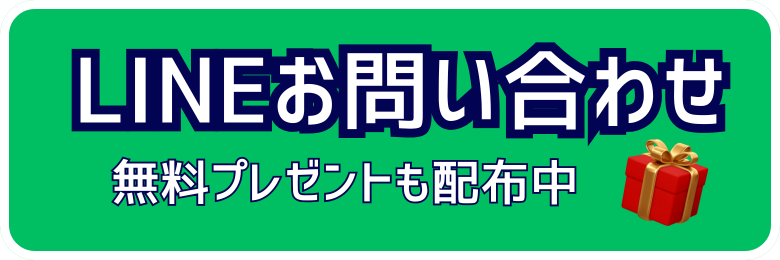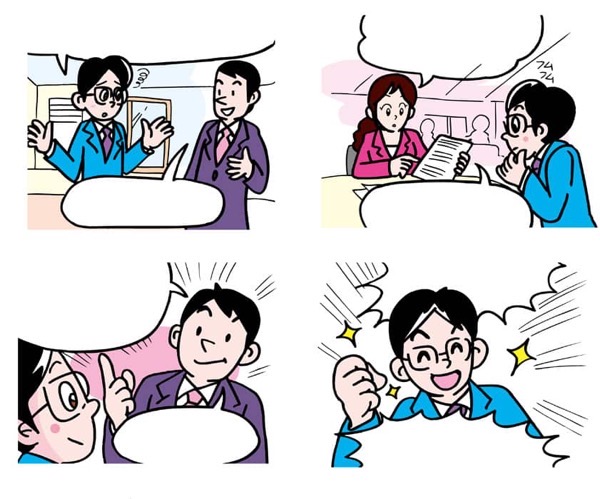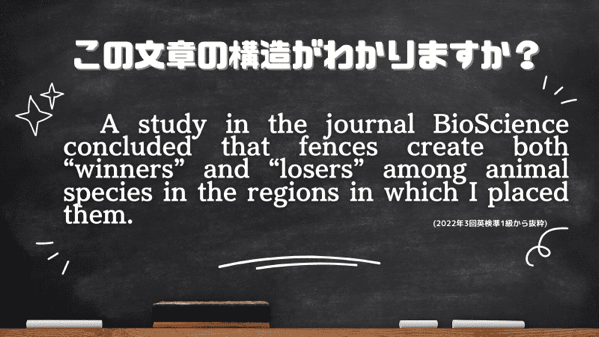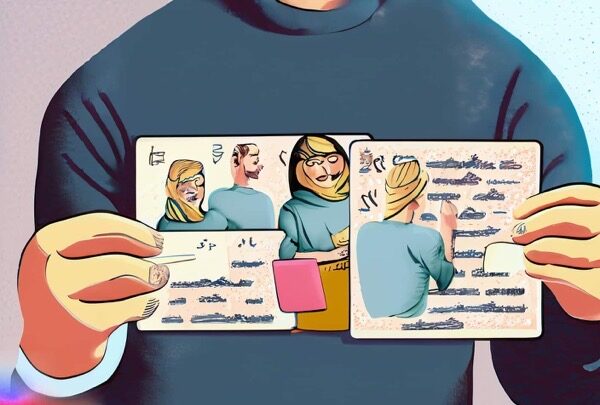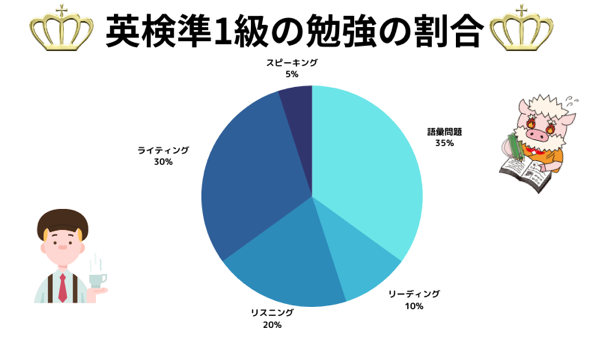【最新版】英検準1級要約予想問題
英検準1級単熟語EXの使い方、英検網羅率、早慶に使える?
英検準1級要約問題対策!プロが教える3ステップ&高得点のコツ
ページ目次英検準1級の要約問題を完全攻略!英検準1級要約問題の概要を掴もう!英検準1級の要約問題は1文何文字程度が理想?そもそも要約とは? 情報を凝縮する達人になろう!抽象化で情報をギュッと凝縮!【準1級要約問題】攻略のカギは?追加:前の文に情報を付け加える【超重要】因果関係を掴むステップ③ 段落間
- …続きを読む
-
英検準1級の要約問題を完全攻略!
2024年から、英検準1級に要約問題が登場します!
これまで英作文1本だったライティングセクションが、リニューアルによって要約問題と英作文の2本立てになるのです。
「要約なんて書いたことない…」「一体どうやって対策すればいいの?」
そんな不安を抱えている方も多いのではないでしょうか?
ご安心ください!
この記事では、英検準1級の要約問題で高得点を取るための具体的な対策法を、豊富な例文と練習方法を交えながら、
[toc]
TOEIC990点、英検1級保持者、英語指導歴10年以上のプロが徹底解説します。この記事を読めば、要約問題の攻略法がわかり、自信を持って試験に臨めるようになりますよ。

ぜひ最後まで読んで、要約問題マスターを目指しましょう!
英検準1級要約問題の概要を掴もう!
まずは、新しく導入される要約問題の概要をしっかり理解しましょう。
英検準1級要約はどんな問題?
要約問題では、200語程度の英文が出題されます。
内容は社会問題や環境問題など、時事的なテーマが中心です。
この英文を読んで、重要なポイントを60〜70語の英語で要約していきます。
【英検準1級要約】試験時間と配点は?

試験時間はこれまで通り90分ですが、リーディング問題と語彙問題が削除され、その分ライティングに時間が割けるようになりました。
とはいえ、ライティング2題となっていますので、ライティングを書くのが苦手な人は、時間的に厳しいでしょう。
要約問題にかける時間の目安は15〜20分(安全圏は15分)です。
それ以上の時間をかけてしまうと、他の問題に支障が出てしまいます。
配点は英作文と同じく16点満点です。
内容、構成、語彙、文法の4つの観点から評価されます。
要約問題は、ライティングで大きなウェイトを占める重要なセクションです。
高得点を取るためには、対策が必須と言えるでしょう。
英検準1級の要約問題は1文何文字程度が理想?

英検準1級の要約問題では、1文あたりの語数は厳密に決まっているわけではありません。
しかし、簡潔で読みやすい要約文を作成するためには、1文あたり15~20語程度を目安にするのがおすすめです。
60~70語の要約文を作成する場合、1文が長すぎると、情報が詰め込みすぎになり、読みにくくなってしまいます。
反対に、1文が短すぎると、文章全体にまとまりがなくなり、論理展開がわかりにくくなる可能性があります。
15~20語程度を目安に、適切な句読点を使用し、文と文の繋がりをスムーズにする接続詞や副詞を効果的に活用することで、簡潔で論理的な要約文を作成することができます。
以下に、1文あたりの語数と要約文の例を示します。
【例1:1文あたりの語数が少ない場合】
The government made a new policy. It aimed to reduce traffic. It worked. (7語, 6語, 5語)
改善点: 文が短すぎて、内容が断片的になり、読みにくい。
【例2:1文あたりの語数が多い場合】
The government implemented a new policy to reduce traffic congestion, and it was very successful in achieving its goals of having fewer cars on the road and cleaner air, which made the city a much more pleasant place to live. (36語)
改善点: 文が長すぎて、情報量が多く、理解しにくい。
【例3:適切な語数で書かれた場合】
The government’s new policy, designed to reduce traffic congestion, proved to be highly effective and successful.
This resulted in fewer cars and, consequently, improved air quality and quality of life. (16 words, 15 words)
【ポイント】
1文あたりの語数を15~20語程度に収める。
接続詞 (and, but, so, becauseなど) や関係代名詞 (which, that, whoなど) を使って文と文を繋げる。
分詞構文や名詞構文などを活用して、文を短くまとめる。
これらのポイントを意識して、練習を重ねることで、適切な長さで、読みやすい要約文を作成できるようになるでしょう。
そもそも要約とは? 情報を凝縮する達人になろう!

新しい英検準1級に登場する「要約問題」。
一体どんな問題で、どんなスキルが必要なのでしょうか?
簡単に言うと、要約とは「文章の重要なポイントだけを抜き出して、簡潔にまとめること」です。
例えば、友達から「昨日のドラマ見た?めっちゃ面白かったんだよ!」と長々とあらすじを聞かされたとします。
でも、あなたは「えーっと、結局何が言いたいの?」と、話が長すぎて要点が掴めない…。そんな経験はありませんか?
そんな時、友達が「主人公が最後に大逆転して、悪役をやっつけたんだよ!」と細かい部分を抜かして、短くまとめてくれたら、「なるほど!面白そうじゃん!」と、すぐに理解できますよね。
これが要約です。
要約は、限られた時間の中で効率的に情報を得るために、
そして相手に情報をわかりやすく伝えるために、とても役立つスキルです。日常生活でも、要約スキルはあらゆる場面で活躍します。
- 新聞やニュース記事の内容を短くまとめて、家族や友人に伝える
- 会議やプレゼンテーションの内容を簡潔に記録する
- 論文やレポートの要点をまとめて、効率的に学習する
このように、要約スキルは、情報過多な現代社会を生き抜く上で必須のスキルと言えるでしょう。
英検準1級の要約問題では、英語で書かれた文章を英語で要約することが求められます。
これは一見難しそうに思えるかもしれませんが、ポイントを押さえれば、誰でもマスターすることができます。
ここでは、要約の基本的な考え方と具体的なテクニックを、豊富な例文と練習問題を交えながら解説していきます。
要約力を高めて、情報を効率的に処理し、相手に分かりやすく伝えられる達人を目指しましょう!
抽象化で情報をギュッと凝縮!

英検準1級の要約問題の練習として、、、
いきなり英語の文章を要約する前に、
要約をする上で非常に重要な“抽象化”することがどのようなことなのかを学んでいきましょう。抽象化とはどのようなことか?
抽象化とは、具体的な情報から共通の特徴や概念を抽出し、より上位の概念で表現することです。
例えば、「りんご、みかん、バナナ」という具体的な果物の名前を「果物」という抽象的な言葉で表現するのが抽象化です。
抽象化によって、情報をより簡潔にまとめることができ、要約文の作成がスムーズになります。
ここでは、まず日本語の文章を抽象化する練習問題を通して、抽象化のスキルを磨いていきましょう。
日本語要約練習問題
以下の文章を、抽象的な表現を使って短くまとめてみましょう。
- 昨日、近所のスーパーで、牛乳、卵、パン、チーズを買いました。
- 山田さんは、東京大学法学部を卒業後、弁護士として活躍し、その後、政治家になり、現在は国会議員として活動しています。
- 地球温暖化の影響で、海面が上昇し、島国では国土が水没する危険性があり、また、異常気象が頻発し、農作物の収穫量が減少し、食糧不足が懸念されています。
- 昨日、スーパーで食料品を買いました。
- 山田さんは、法曹界を経て政界に進出し、現在は国会議員として活躍しています。
- 地球温暖化は、環境問題や食糧問題など、様々な深刻な問題を引き起こしています。
解説
- 「牛乳、卵、パン、チーズ」という具体的な商品名を「食料品」という抽象的な言葉に置き換えました。
- 「東京大学法学部」「弁護士」「政治家」「国会議員」という具体的な職業や肩書きを「法曹界」「政界」という抽象的な言葉で表現しました。
- 「海面上昇」「国土水没」「異常気象」「農作物収穫量減少」「食糧不足」という具体的な事象を「環境問題」「食糧問題」という抽象的な概念にまとめました。
[/su_spoiler]
抽象化は、要約問題だけでなく、様々な場面で役立つスキルです。
日頃から情報を整理することを意識し、抽象的な思考を鍛えることで、要約力だけでなく、思考力や表現力も向上させることができます。
もう少し抽象度を上げた解答例
[su_spoiler title="クリックして解答を表示" icon="plus-square-2"]- 昨日、買い物をしました。
- 山田さんは、専門性を活かしてキャリアを築いています。
- 地球温暖化は、地球規模で深刻な影響を及ぼしています。
解説
- 「スーパー」や「食料品」といった具体的な情報を省き、「買い物」というより抽象的な行動で表現しました。
- 具体的な職業や経歴を省き、「専門性を活かしたキャリア」という抽象的な表現でまとめました。
- 具体的な問題点を省き、「地球規模で深刻な影響」という、より包括的な表現で要約しました。
[/su_spoiler]
抽象化はより広い範囲を包含する言葉を選ぶことで、文章を短くしつつ、本質的な情報を伝えることができます。
よくありがちな間違いとして、具体、抽象の二部法で考えてしまうことです。
どちらも相対的な概念なので、対象となる文章同士を比べて抽象か、具体なのかを決めるようにしましょう。
要約に唯一の正解はないのです!!
状況や目的に応じて、どの程度の抽象度で情報をまとめるべきかが変わってきます。
例えば、上の例で「果物」よりもさらに抽象化すると「食べ物」という表現も可能です。
「食べ物」は「果物」よりも広い概念を包含しているので、より抽象度が高いと言えます。
どのレベルの抽象度が適切かは、要約する文章のテーマや目的、そして字数制限などを考慮して判断する必要があります。
ここでは、日本語の文章を抽象化する練習問題を通して、抽象化のスキルと適切な抽象度を見極める力を磨いていきましょう。
抽象化をする際のコツ
- 具体的な名詞をグループ化する: 共通の特徴を持つ名詞を、より上位の概念でまとめる
- 動作や状態を一般化する: 特定の行動や状況を、より一般的な言葉で表現する
- 情報をカテゴリー化する: 複数の情報を、共通のテーマやカテゴリーに分類する
- 状況や目的に応じて、適切な抽象度を選ぶ: 要約する文章のテーマや目的、そして字数制限などを考慮して、抽象度を調整する
日頃から情報を整理することを意識し、抽象的な思考を鍛えることで、英検準1級の要約力だけでなく、読解力はもちろんのこと、思考力や表現力も向上させることができます。
【準1級要約問題】攻略のカギは?

要約問題を効率的に解くために、以下の3ステップを意識しましょう。
- ステップ1:読解
- ステップ2:捨象
- ステップ3:変換
【ステップ1】 読解 論理構成を把握する

要約問題で高得点を取るには、英文の論理構成を正確に理解することが最も重要です。
建物を建てる前に設計図が必要なように、要約文を作る前にも文章全体の設計図=論理構成を理解することが不可欠です。
論理構成とは、筆者がどのような流れで主張を展開しているのか、という文章の骨組みのこと。
これを把握することで、どの情報が重要で、どの情報が補足的なのかが明確になります。
例えるなら、文章全体を俯瞰する地図を手に入れるようなイメージです。
下記3点に注意して、文章を読んでいきましょう。
- トピックセンテンスを探す
- ディスコースマーカーに注目する
- 段落間の関係性を掴む
具体的に一つずつ見ていきましょう。
① トピックセンテンスを探す
要約問題を攻略するには、まず各段落が何を伝えたいのかを理解することが重要です。
そのために、各段落のトピックセンテンスを見つけ出す練習をしましょう。
トピックセンテンスとは、その段落の主題を端的に示した文のこと。いわば、各段落のリーダーのような存在です。
多くの場合、段落の最初の文がトピックセンテンスになりますが、必ずしもそうとは限りません。
注意深く 段落全体を読み、筆者が最も伝えたいことを見抜くことが重要です。
それでは、具体的に文章を読んで見ていきましょう。
【例文】
Recycling is one way to protect the environment, but it is not a perfect solution. Many recycled materials are downcycled, meaning they are turned into lower-quality products. Furthermore, the recycling process itself can be energy-intensive and produce pollution. Recently, reducing waste has been receiving a lot of attention as a more sustainable approach. By reducing consumption and reusing items, we can minimize the amount of waste that needs to be recycled or disposed of. This approach is gaining popularity as people become more aware of the environmental impact of their choices.
最初の数文はリサイクルの限界について説明しています。
しかし、続く文章では、Recentlyで話が転換をして、より持続可能なアプローチとして「ゴミ削減」が注目されていることがわかります。
そして、消費を減らし、物を再利用することで、リサイクルや廃棄されるゴミの量を最小限に抑えることができると述べています。
つまり、この段落のトピックセンテンスは「reducing waste has been receiving a lot of attention」です。
② ディスコースマーカーに注目する

次に、ディスコースマーカー(論理マーカーとも呼ばれます)に注目しましょう。
ディスコースマーカーなんて聞いたことありません!

ディスコースマーカーとは、文と文の関係性を示す言葉のこと。
いわば、文章の流れを読み解くためのヒントであり、筆者の思考を辿る道しるべです。
これを理解すれば、筆者がどのような論理で文章を組み立てているのかを把握することができます。
逆にいうと、ディスコースマーカーがわからないと文章を理解することは不可能です。

いわば名探偵が事件の真相を解明する手がかりのようなもの。
それぞれのディスコースマーカーが持つ意味合いを理解し、文と文の繋がりを見抜くことで、英文の論理構成をより深く理解することができます。
代表的なディスコースマーカーを4つの種類に分けて、例文を交えながら解説していきます。
- 逆説
- 例示
- 追加
- 因果関係
逆説:前の文と反対の内容を述べる
- However,
- Although 主語+動詞, 主語+動詞
- 主語+動詞, but 主語+動詞
【例】
Smartphones offer many advantages, such as easy access to information and convenient communication. However, excessive smartphone use can have negative impacts on mental and physical health.
【解説】
最初の文でスマートフォンの利点を述べた後、Howeverで逆説を導入し、後半では「使いすぎると健康に悪影響がある」という反対の内容を述べています。
【要約のポイント】
逆説のディスコースマーカーの後には、筆者が本当に伝えたい重要な情報が置かれることが多いです。要約する際は、However以降の内容を重視しましょう。
例示:前の文の具体例を挙げる
- For example,
- 主語+動詞, including 名詞
- 主語+動詞, such as 名詞
【例】
Renewable energy sources are becoming increasingly important in combating climate change. For example, solar and wind power are now more affordable and accessible than ever before.
【解説】
最初の文で再生可能エネルギーの重要性を述べた後、For exampleで具体例を導入し、後半では太陽光発電や風力発電を例に挙げて説明しています。
【要約のポイント】
例示はあくまで補足情報なので、要約する際は省略しても問題ありません。
重要なのは、例示の前にある主張です。
英検2級では入れることがありますが、英検準1級では原則入れないと考えてください。
追加:前の文に情報を付け加える
- Additionally,
- S also V (←忘れがちなので重要)
- Some 文章 others 文章
【例】
Regular exercise has numerous health benefits. Additionally, it can improve mood, reduce stress, and boost cognitive function.
【解説】
最初の文で運動の健康効果を述べた後、Additionallyで情報を追加し、後半では気分改善、ストレス軽減、認知機能向上といった具体的な効果を挙げています。
【要約のポイント】
追加情報は主張を補強する役割を持つため、要約する際に重要な情報となります。
【超重要】因果関係を掴む

原因 (S’V’, SV) 原因 (句) 結果 (SV) Because Due to 名詞 Therefore, Because of 名詞 Thus, Consequently, As a result, 文章の内容を理解する上で非常に重要な概念です。
ディスコースマーカーだけでなく下記3パターンで因果関係がよく使われるので注意してください。
- ディスコースマーカー
- 名詞構文
- 分詞構文
【例1:ディスコースマーカーで明示的に因果関係を表す場合】
The demand for electric cars is increasing. Consequently, car manufacturers are investing heavily in the development of new electric vehicle models.
【解説】
最初の文で電気自動車の需要増加を述べ、Consequentlyで結果を示し、後半では自動車メーカーが電気自動車モデルの開発に投資していることを述べています。
【例2:名詞構文で因果関係を表す場合】
The popularity of online shopping has led to a decline in traditional retail stores.
【解説】
この文では、「オンラインショッピングの人気が高まったこと」が原因で「従来の小売店の衰退」という結果が生まれたことを、名詞構文 “The popularity of online shopping” を主語にすることで表現しています。
【例3:文末の分詞構文で因果関係を表す場合】
Many people are choosing to live in urban areas, leading to increased population density in cities.
【解説】
この文では、「多くの人が都市部に住むことを選択していること」が原因で「都市部の人口密度が高まっている」という結果が生まれたことを、分詞構文 “leading to increased population density in cities” を使って表現しています。
【要約のポイント】
因果関係は、文章の論理展開を理解する上で非常に重要です。
特に、名詞構文や分詞構文で因果関係が表現されている場合は見落としがちなので、注意深く読み取るようにしましょう。
ディスコースマーカーは、筆者の思考を理解するための重要な手がかりです。それぞれのマーカーが持つ意味合いを理解し、文と文の繋がりを見抜くことで、英文の論理構成をより深く理解し、効果的な要約文を作成することができます。

ステップ③ 段落間の関係性を掴む
各段落のトピックセンテンスとディスコースマーカーを手がかりに、段落間の関係性を掴むことが重要です。
これは、森の木々を見るのではなく、森全体を俯瞰するようなイメージ。
全体像を把握することで、筆者の主張の核心が見えてきます。
英検準1級の要約問題では、多くの場合、3段落構成が採用されます。
各段落はそれぞれ特定の役割を担っており、それらが組み合わさることで、筆者の主張を効果的に伝える論理構造が構築されています。
英検準1級の要約問題では、多くの場合、3段落構成で以下のようなパターンが見られます。
- 第1段落:導入(社会問題や現状の説明)
- 第2段落:賛成意見(メリットや利点)
- 第3段落:反対意見(デメリットや懸念点)
【例】
第1段落:
The rise of social media has had a profound impact on society. It has changed the way we communicate, consume information, and interact with the world around us.
第2段落:
Proponents of social media argue that it has democratized information and made it easier for people to connect with each other. They point to the role of social media in facilitating social movements and raising awareness of important issues.
第3段落:
However, critics argue that social media can be addictive and contribute to a decline in mental health. They also express concerns about the spread of misinformation and the erosion of privacy.
この例では、第1段落で「ソーシャルメディアの影響」というテーマが提示され、第2段落で「賛成派の意見」、第3段落で「反対派の意見」が述べられています。
その他の代表的なパラグラフの論理展開例
具体的な英文例を挙げながら解説します。
1. 問題提起 → 解決策 → 効果・影響
第1段落(問題提起):
The world’s population is growing rapidly, and this is putting a strain on our ability to produce enough food for everyone. Food security is a major concern, as climate change, water scarcity, and land degradation threaten agricultural productivity.
第2段落(解決策):
One potential solution to this problem is vertical farming. Vertical farms are multi-story buildings where crops are grown indoors under controlled conditions. This method uses less water and land than traditional agriculture, and it can be implemented in urban areas, closer to consumers.
第3段落(効果・影響):
Vertical farming has the potential to revolutionize food production, making it more sustainable and efficient. By reducing transportation costs and food waste, vertical farms can also help to lower the environmental impact of agriculture. However, there are challenges to overcome, such as the high energy consumption of indoor growing systems.
【解説】
この文章は、世界の人口増加に伴う食糧問題を提起し、その解決策として垂直農法を紹介しています。
第1段落では食糧安全保障が重要な課題であることを示し、第2段落では垂直農法の特徴と利点を説明しています。
そして第3段落では、垂直農法が食糧生産に革命をもたらす可能性がある一方で、克服すべき課題も存在することを指摘しています。
2. 現状の説明 → メリット → デメリット
第1段落(現状の説明):
The COVID-19 pandemic has accelerated the adoption of remote work. With advances in technology, many employees are now able to perform their jobs effectively from home. This shift has led to a significant change in the traditional workplace.
第2段落(メリット):
Remote work offers several benefits for both employees and employers. Employees can enjoy greater flexibility and work-life balance, while employers can reduce office space costs and access a wider pool of talent.
第3段落(デメリット):
However, remote work also presents some challenges. Maintaining communication and collaboration among team members can be difficult, and some employees may struggle with isolation and loneliness.
【解説】
この文章は、パンデミックをきっかけに普及したリモートワークについて、そのメリットとデメリットを論じています。
第1段落ではリモートワークの普及という現状を説明し、第2段落では従業員と雇用主双方にとってのメリットを挙げています。
そして第3段落では、コミュニケーションや孤独感といったリモートワークに伴う課題を指摘しています。
3. 現象の提示 → 原因 → 結果
第1段落(現象の提示):
Surveys show that young people are reading less than ever before. This trend is concerning, as reading has numerous benefits for cognitive development, language acquisition, and emotional intelligence.
第2段落(原因):
Several factors contribute to this decline in reading. The rise of social media and streaming services has created more competition for young people’s attention. Additionally, many young people find traditional books to be boring or irrelevant to their lives.
第3段落(結果):
This decline in reading could have serious consequences. It could lead to a decline in literacy rates, critical thinking skills, and empathy. Furthermore, it could make it more difficult for young people to succeed in school and in their future careers.
【解説】
この文章は、若者の読書離れという現象を取り上げ、その原因と結果について分析しています。
第1段落では読書離れという現状を提示し、その問題点を指摘しています。
第2段落ではソーシャルメディアの普及や従来の書籍への興味関心の低下など、読書離れの原因を分析しています。
そして第3段落では、読書離れがもたらす深刻な影響について警鐘を鳴らしています。
4. 主張の提示 → 根拠1 → 根拠2
【例:音楽教育の重要性】
第1段落(主張の提示):
Music education is essential for the holistic development of children. It not only fosters creativity and self-expression but also enhances cognitive skills and promotes social and emotional growth.
第2段落(根拠1):
Studies have shown that learning music can improve children’s memory, attention, and language skills. Playing a musical instrument requires coordination and discipline, which can translate to other areas of life.
第3段落(根拠2):
Furthermore, music education provides opportunities for children to collaborate and connect with others. Participating in a choir or orchestra fosters teamwork and communication skills.
【解説】
この文章は、音楽教育の重要性を主張し、その根拠を2つの段落で提示しています。
第1段落では、音楽教育が子供たちの全体的な発達に不可欠であると主張しています。
第2段落では、音楽学習が子供の記憶力、注意力、言語能力を向上させるという研究結果を根拠として示しています。
第3段落では、音楽教育が子供たちに協調性やコミュニケーション能力を育む機会を提供するという根拠を述べています。
これらの例以外にも、様々な論理展開があります。
重要なのは、各段落の役割を理解し、全体としてどのような論理構造で筆者の主張が展開されているのかを把握することです。
この全体像を掴むことで、要約すべきポイントが明確になり、効果的な要約文を作成することができます。
【ステップ2】捨象 一般化・抽象化する

先ほど行った日本語での抽象化を今度は英語で行なっていきましょう。
ステップ1で英文の論理構成を把握したら、次は情報を一般化・抽象化していきます。
これは、具体的な情報から重要なポイントを抽出し、より少ない言葉で表現するテクニック。
例えるなら、旅行の荷物をコンパクトにまとめるようなイメージです。
要約問題では、制限字数内に収めるために必須のスキルと言えるでしょう。
具体的な情報は抽象的な言葉に置き換える
文章中に登場する具体的な名詞(人物名、地名、組織名、商品名など)は、より抽象的な言葉に置き換えましょう。
【問題例】
In 2023, a team of scientists at Harvard University developed a new type of battery that can store twice as much energy as conventional batteries. The new battery is made from a combination of lithium and graphene, and it is expected to revolutionize the electric vehicle industry.
【解説】
この文には、「2023年」「ハーバード大学の科学者チーム」「リチウムとグラフェン」「電気自動車産業」といった具体的な名詞が登場します。
これらの名詞を抽象的な言葉に置き換えてみましょう。
- 2023年 → 近年 recent years
- ハーバード大学の科学者チーム → 科学者たち researchers
- リチウムとグラフェン → 新素材 advanced materials
- 電気自動車産業 → 産業界 the industry
【抽象化後の文章(日本語)】
近年、科学者たちは従来のバッテリーの2倍のエネルギーを蓄えられる新しいタイプのバッテリーを開発した。この新素材で作られたバッテリーは、産業界に革命を起こすと期待されている。
【抽象化後の文章(英語)】
In recent years, researchers have developed a new type of battery that can store twice as much energy as traditional batteries. This new battery, made from advanced materials, is expected to transform the industry.
このように、具体的な名詞を抽象的な言葉に置き換えることで、情報の焦点がより明確になります。
具体的な数値や統計データを「多数」「少数」などの言葉で表現する
文章中の具体的な数値や統計データは、「多数」「少数」「ほとんど」「わずか」などの言葉で表現することで、情報を凝縮できます。
【問題例】
A recent study found that 85% of American adults own a smartphone, while only 35% own a tablet device.
【解説】
この文には、「85%」と「35%」という具体的な数値が登場します。これらの数値を抽象的な言葉で表現してみましょう。
- 85% → 大多数 majority
- 35% → 少数 minority
【抽象化後の文章】
最近の調査によると、米国の成人の大多数がスマートフォンを所有しているのに対し、タブレット端末を所有しているのは少数にとどまることがわかった。
In a recent survey, the majority of employees expressed satisfaction with their job, while a minority were dissatisfied, and a portion remained neutral.
このように、具体的な数値を言葉で表現することで、情報を簡潔に伝えることができます。
練習問題
以下の文を、具体的な数値を言葉で表現してみましょう。
- In a survey of 500 college students, 75% reported feeling stressed about their academic workload.
- The company’s revenue increased by 20% last quarter, while its profits rose by only 5%.
【解答例】
1. A survey of college students revealed that a significant majority reported feeling stressed about their academic workload.
2. The company’s revenue saw a substantial increase last quarter, while its profits grew only marginally.
以上の2つのテクニックを組み合わせることで、具体的な情報を抽象化し、より少ない言葉で要点を表現することができます。要約問題に取り組む際は、これらのテクニックを活用して、制限字数内で的確に情報を伝えることを心がけましょう。
【ステップ3】変換 ~ 言い換えテクニックで要約力を高めよう!

ステップ2で情報を一般化・抽象化したら、いよいよ言い換えを行い、要約文を作成していきます。
このステップでは、情報を整理して得た「地図」と「コンパクトな荷物」を使って、自分だけのオリジナルの要約文を作り上げていくイメージです。
言い換えには、以下の2つの目的があります。
- 同じ表現の繰り返しを避ける
- より洗練された表現にする
言い換えテクニックをマスターすることで、採点官に「この受験者は語彙力があり、表現力も豊かだな」と好印象を与えることができます。
同意語を使う ~ 語彙力をアピール!
同じ単語を何度も使うのではなく、同意語を積極的に使うことで、語彙力をアピールしましょう。
【例】
Many students experience anxiety before taking an important exam.
↓
Numerous students feel anxious prior to taking a crucial exam.
このように、“many” を “numerous”、“important” を “crucial” という同意語に言い換えることで、より洗練された印象になります。
英検準1級レベルの同意語をいくつか紹介しますので、ぜひ参考にしてみてください。
よく使う単語 同意語 important crucial, significant, essential, vital problem issue, challenge, difficulty, obstacle solution answer, resolution, remedy, approach improve enhance, boost, upgrade, refine reduce decrease, diminish, lessen, alleviate increase rise, grow, surge, escalate support back, advocate, promote, endorse oppose resist, object to, challenge, criticize argue claim, assert, contend, maintain believe think, consider, hold, deem 練習問題1
次の文の太字部分を、上記の表を参考に同意語に言い換えてみましょう。
- Many experts believe that climate change is a serious problem.
- The government is implementing a new policy to reduce traffic congestion.
- Exercise can improve both physical and mental health.
【解答例】
1. Numerous experts consider that climate change is a serious issue.
2. The government is implementing a new policy to alleviate traffic congestion.
3. Exercise can enhance both physical and mental health.
[/su_spoiler]
文を句で表現する ~ 短くスマートな表現をマスターしよう!
「文を句で表現する」とは、主語と動詞を含む文を、名詞句や形容詞句などに言い換えるテクニックです。
文章をより短く、スマートで洗練された表現にすることができます。
これは、制限字数のある要約問題において非常に有効なテクニックと言えるでしょう。
具体的な方法を、文法項目を交えながら解説していきます。
接続詞を前置詞句に置き換えて文を短縮しよう!
要約問題では、限られた字数の中で情報を正確に伝える必要があり、簡潔な表現が求められます。
そこで役立つのが、接続詞を前置詞句に置き換えるテクニックです。
接続詞で始まる副詞節を、前置詞句にすることで、文を短くすることができます。
特に因果関係を表す接続詞 “because” は、前置詞 “due to” や “because of” を使った句に置き換えることで、より簡潔で洗練された表現にすることができます。
実例で確認
【例文】
The game was canceled because the weather was bad.
↓
The game was canceled due to the bad weather.
The game was canceled because of the bad weather.
このように、接続詞 “because” を前置詞句 “due to” や “because of” に置き換えることで、より簡潔で自然な表現にすることができます。
ポイント
“due to” と “because of” はどちらも「~のために」という意味ですが、”due to” の方がよりフォーマルな印象を与えます。
前置詞句は、文頭に置かれることが多いですが、主節の後に置くことも可能です。
“because” を前置詞句に置き換える際には、動詞を名詞化する必要がある場合があります。
練習問題
以下の文の “because” を前置詞句 “due to” または “because of” に置き換え、文を書き換えてみましょう。
- Because the traffic was heavy, I was late for the meeting.
- Many people are choosing to work from home because the cost of commuting has increased.
- The concert was canceled because the lead singer got sick.
【解答例】
1. Due to the heavy traffic, I was late for the meeting. / Because of the heavy traffic, I was late for the meeting.
2. Many people are choosing to work from home due to the increased cost of commuting. / Many people are choosing to work from home because of the increased cost of commuting.
3. The concert was canceled due to the lead singer’s illness. / The concert was canceled because of the lead singer’s illness.
接続詞を前置詞句に置き換えるテクニックをマスターすることで、要約問題でより効果的に情報を伝えることができるようになります。
積極的に練習に取り組んで、簡潔で洗練された英文作成スキルを磨いていきましょう!
名詞構文を効果的に活用する
“increased” を “increase” に名詞化します。
【例文】
Due to the increase in the price of gasoline, many people started using public transportation.

名詞構文を効果的に活用することで、よりアカデミックで洗練された表現にすることが可能です。名詞構文とは、動詞を名詞化して主語にする構文のことです。
【例】
The government decided to implement a new policy.
↓
The government’s decision to implement a new policy was met with mixed reactions.
このように、“decide”を“decision”という名詞化することで、よりフォーマルで客観的な印象になります。
名詞構文は、アカデミックな文章で頻繁に使われる表現なので、要約問題で効果的に活用することで、高評価に繋がります。
練習問題2
以下の文を、句を使って短くし、さらに名詞構文を使って書き換えてみましょう。
- The use of smartphones has increased rapidly, and this is causing concern among educators.
- The government invested heavily in renewable energy, and this resulted in a significant reduction in carbon emissions.
- Scientists conducted a thorough investigation, which led to a new discovery in the field of medicine.
- The number of people working from home has risen dramatically, and this is changing the way companies operate.
【解答例】
1. The rapid increase in smartphone use is causing concern among educators. → The rapid increase in smartphone use has led to concern among educators.
2. Due to heavy government investment in renewable energy, there was a significant reduction in carbon emissions. → Heavy government investment in renewable energy has resulted in a significant reduction in carbon emissions.
3. A thorough investigation by scientists led to a new discovery in the field of medicine.
4. The dramatic rise in the number of people working from home is bringing about changes in how companies operate.
[/su_spoiler]
名詞構文についてはこちらの記事で詳しく説明しています。
[nlink url="https://hiroacademia.jpn.com/blog/sankosyo/eigo/meishikobun-2/"]また、名詞構文の練習には下記の教材がおすすめです。
『ここで差がつく!英文ライティングの技術』、『発信型英語スーパーレベルライティング』
[itemlink post_id="25074"] [itemlink post_id="25075"]パラフレーズのコツ ~ 柔軟な発想で表現の幅を広げよう!
パラフレーズは、単に単語を置き換えるだけでなく、文全体の構造を変えたり、異なる視点から表現したりするなど、柔軟な発想が求められます。
いくつか具体的な方法を紹介しましょう。
受動態と能動態の変換
【例】
The new law was passed by the government. (受動態)
↓
The government passed the new law. (能動態)
受動態を能動態に変えることで、文章が短くなり、より直接的な表現になります。
文型を変える
【例】
The company’s profits increased significantly due to the new marketing strategy. (SVO)
↓
The new marketing strategy brought about a significant increase in the company’s profits. (SVOC)
文型を変えることで、同じ内容を異なる視点から表現することができます。
類義語だけでなく、反意語も活用する
【例】
The team’s performance was poor.
↓
The team failed to perform well.
反意語を使うことで、表現に変化を与え、より洗練された印象にすることができます。
練習問題3
次の文を、できるだけ多くの方法でパラフレーズしてみましょう。
[su_spoiler title="解答を表示" icon="plus-square-2"]The increasing popularity of electric vehicles is contributing to a decrease in air pollution.
【解答例】
Air pollution is decreased due to the rising popularity of electric vehicles. (受動態)
The more popular electric vehicles become, the less air pollution there is. (比較級)
Electric vehicles are becoming increasingly popular, which is leading to a reduction in air pollution. (関係代名詞)
The growing demand for electric vehicles is helping to improve air quality. (反意語)
[/su_spoiler]
パラフレーズのコツは、色々な表現方法を試して、表現の幅を広げていくことです。
積極的に練習に取り組むことで、要約問題に必要な柔軟な表現力を身につけることができます。
英検準1級要約問題の練習方法を紹介!
要約問題は、実際に練習を重ねることが重要です。
以下のステップで練習してみましょう。
【ステップ1】 英文記事を読む
まずは、英字新聞や雑誌の記事など、200語程度の英文を読み、内容を理解する練習をしましょう。
おすすめは、The Japan TimesやBBC Newsなどのオンラインニュースサイトです。
まずは興味のある分野の記事を選ぶことで、モチベーションを維持しやすくなります。
【ステップ2】 各段落を要約する
英文全体を読んだら、各段落の要旨を日本語でメモしましょう。
この時、ステップ1で学んだ論理構成の把握を意識することが重要です。
- トピックセンテンスは何か?
- ディスコースマーカーはどのように使われているか?
- 段落間の関係性は?
これらの点を考慮しながら、各段落の核となる情報を抽出していきます。
【ステップ3】 要約文を作成する
日本語でメモした内容を基に、60~70語の英文要約文を作成しましょう。
この時、ステップ2で学んだ一般化・抽象化と言い換えのテクニックを活用することが重要です。
また、文法やスペルのミスがないか、論理的に矛盾がないかなど、見直すことも忘れずに行いましょう。
【ステップ4】 模範解答と比較する
作成した要約文と模範解答を比較し、改善点を見つけましょう。
内容、構成、語彙、文法の4つの観点から、自分の要約文を分析してみましょう。添削を受けるよりもまずは自分でチェックできるレベルを上げていくのが重要です。

- 重要な情報は全て網羅されているか?
- 論理展開は明確でわかりやすいか?
- 適切な語彙が使われているか?
- 文法やスペルのミスはないか?
こちらの記事で予想問題を作成したので、ここまでに学んだ考え方を使って問題を解いてみてください。
[nlink url="https://hiroacademia.jpn.com/blog/kentei/eigokentei/grade-pre1/eiken-pre1-yoyakuyosou/"]まとめ|英検準1級要約問題を制覇しよう!
この記事では、英検準1級の要約問題の概要と対策法を詳しく解説しました。
要約問題は、英文の論理構成を把握し、情報を一般化・抽象化し、適切な表現で言い換えることが重要です。
これらのスキルは、一朝一夕に身につくものではありません。日頃から英文に触れ、積極的に要約する練習を積み重ねることで、着実に実力アップを目指しましょう。

自信を持って試験に臨めるよう、しっかりと準備を進めていきましょう!
[eiken-counseling]
【英検リスニング】聞き取れない原因と解決策と勉強法【メモ取り、シャドーウィング、オーバーラッピング、先読みとは?】
ページ目次英検リスニングは絶対にできる!英検リスニングが聞き取れない原因とは?英検リスニングができるようになるための勉強法とは?シャドーイングとは?シャドーウィングの方法シャドウィングの注意点オーバーラッピングのやり方英語のイントネーションについて英検級ごとに対してのメモ取りへの取り組み方英検での先
- …続きを読む
-
英検リスニングは絶対にできる!
こんにちは、
英検リスニングでつまずいていませんか?
英語を理解するのが難しいと感じたことはありませんか?その問題、私たちは一緒に解決できます。
このブログでは、英検リスニングでよくある問題とその解決策、さらに効果的な勉強法をご紹介します。
英検リスニングの難しさは、
文法力不足、語順の理解、英語のスピードへの対応、内容の難易度、発音の理解など、
多岐にわたる要素が関与しています。これらの課題に取り組むことで、リスニング力は確実に向上します。
結論
本ブログでは、メモ取り、シャドーウィング、オーバーラッピング、先読みという、一歩先を行く勉強法もご紹介!
これらの手法は、英語のリスニング能力を飛躍的に向上させ、英語への理解を深めることに役立ちます。皆さんが英語のリスニングで直面する課題を解決し、楽しく、そして効率的に英語学習を進められるように、
このブログを活用していただければ幸いです。一緒に、英検リスニングの壁を乗り越えましょう!
[toc]英検リスニングが聞き取れない原因とは?

英検リスニングが聞き取れない原因は、
さまざまな原因が考えられますが、
ここでは下記について考えていきます。- 文法力不足
- 英語を語順通りに処理できない
- 英語のスピードについていけない
- 細部にこだわりすぎ
- 内容が難しすぎる
- 発音の理解が不足
- 疑問文に弱い
発音の理解が不足
英語の発音を理解できていないと、’ship’と’sheep’、’bought’と’thought’など、
似たような音を正確に聞き分けるのが難しくなります。
この問題を克服するためには、発音記号の知識の理解と発音練習が必要です。別途記事で発音記号やリスニングにおけるルールを説明しますので、確認ください。
解決策とは
英語の発音と日本語の発音は違うので、英語の発音のルールがわかってないとたとえ音が聞こえても、何を言っているのかわからないというのがあります。英語がすごい苦手・・という場合はまずは発音のルールを理解するのが先決になってくるでしょう。
文法力不足とは
文法の知識が不足していると、
“He gave her the book.”が
“He gave the book from her.”
に聞こえてしまうこともあります。
この問題を解決するためには、基本的な文法ルールを身につけることが重要です。
教科書やウェブサイトを使って自分で勉強するか、教師やネイティブスピーカーに指導を求めることが有効です。解決策とは
中学レベルの基本的な文法、特に文構造がわからないと英文を聞いてもただの単語の塊に聞こえるだけで理解が薄くなってしまうので、
まずは「大岩の英文法」で基本的な英文法を理解していきましょう。
[nlink url="https://hiroacademia.jpn.com/blog/sankosyo/eigo/oiwaeibunpo/"]疑問文に弱い
疑問文を理解できないと、’Do you like apples?’と言われても、
それが質問なのか確認なのかを理解できないことがあります。
これに対する対策は、疑問文の形式や文法を学ぶことです。中高一貫校で英語が苦手だけど、
[nlink url="https://hiroacademia.jpn.com/blog/genekisei/chukoikkan-english/"]
高校になってから急に受験勉強を始めた人は要注意
中高一貫校の英語の苦手状況をどのようにしたら良いのか?についてはこちらの記事でお伝えしています。解決策とは
英検2級、準2級の過去問を使って、
基本的な疑問文の形式を学び、
英語の文章や会話の中でそれらの形式を見つける練習をすると良いでしょう。英語を語順通りに処理できない

英語の語順に慣れていないと、「I like apples」を「りんごが好きです」ではなく
「りんごは私を好き」と訳してしまうかもしれません。
→実際、単語から推測してこのレベルで間違える人はいないですが、、
単語が変われば間違える高校生はよくいるのです。
これに対する対策としては、英語の文章を多く読むことが助けになります。
特に、ネイティブスピーカーが書いた本や記事を読むと、
自然な英語の語順に触れることができます。解決策とは
基本文法ができてないことに直結しますが、文法を理解するだけでなく耳で処理ができるようにならないといけません。
何度も耳で英語を聞く習慣をつけてください。英語のスピードについていけない
ネイティブスピーカーの話す速さに慣れていないと、言葉が飛んでしまうことがあります。
この問題を解決するためには、リスニング教材を繰り返し聞くことが重要です。
また、音楽や映画、オンラインの英会話レッスンなどを活用し、自然なスピードの英語に耳を慣らすことも有効です。解決策とは
一番は自分のレベルに合った教材で、シャドーウィングかオーバーラッピングをするのが良いでしょう。
レベルに合った聴解練習:理解可能な英語音声を探して聴きましょう。
それはオーディオブック、ポッドキャスト、または動画教材などであれ、あなたが理解しやすいものから始めましょう。
反復練習:聞き取れなかった部分は何度も繰り返し聞きましょう。
それぞれの単語やフレーズが何を意味するのか理解することで、リスニング能力を向上させることができます。細部にこだわりすぎ

リスニングで一番難しい分野になります。
リスニングでは、全体の意味を捉えることが重要で、
1つの単語につまづいてしまうと全体の流れを失ってしまうことがあります。
例えば、「彼が明日パーティーに行く」という内容を聞き取る際、未知の単語に引っかかりすぎてしまうと、
「彼が何かに行く」まで理解するのが難しくなります。こういった問題に対しては、全体の意味を捉えることに焦点を当て、
理解できない単語があっても大まかな内容を理解するように努めることが大切です。解決策とは
聞きながら、整理をするのが重要になります。ディスコースマーカーを使って全体像を理解することを努めていきましょう。
内容が難しすぎる
難易度の高いトピックは、それだけで聞き取りを難しくします。例えば、「量子物理学についてのディスカッション」は物理学に詳しくない人にとっては難しいかもしれません。
この問題に対する対策として、自分の理解レベルに合った内容の英語を聞くことが重要です。興味があるトピックから始めると、学習のモチベーションも保ちやすいでしょう。
解決策とは
英検のリスニングはいきなり聞いてもよくわからない文章が結構多いので、
いかにして英語を聴く前に情報を手に入れるかが重要になります。
そのため、先読みができるかどうかが鍵を握っています。英検リスニングができるようになるための勉強法とは?

ここまでの話をまとめると、英検のリスニングができるようになるためには、
発音、英文法の基礎を学んだ上で、
シャドーウィング、オーバーラッピングといった勉強法、
メモ取り、先読みといったテクニックを使って勉強を使う必要があるでしょう。Checkメモ取り、シャドーウィング、オーバーラッピング、先読みの仕方を理解する必要がある!
シャドーイングとは?

シャドーウィングとは、
母国語ではない言語の音声やビデオを聞きながら、同時にその発音や言葉を真似ることを指します。
このテクニックは、聴解力と話す能力、さらには発音スキルを向上させるのに大変役立ちます。シャドーウィングのテクニックを効果的に使用するための具体的なステップ、その使用例、
そしてどのようにしてそれがあなたの語学習得を加速させるのかについて詳しく説明していきます。
初心者から上級者まで、どんなレベルの学習者でもシャドーウィングは有用で、このテクニックを使うことであなたの語学能力が飛躍的に上がることを約束します。シャドーウィングの方法
それでは、ここからシャドーウィングの具体的な方法をお伝えしていきます。
音声だけを聴く

教材として「The cat sat on the mat」という短いフレーズを使用します。
まず、その音声を聴いてみましょう。
このステップでは、発音の仕方やイントネーション、つまり音の上下やリズムに注意を払います。聞いていると、「cat」や「mat」がカットのような硬いt音で終わることや、「sat on the」の部分が速く連続して発音されていることに気づくかもしれません。
英文を確認しながらリスニング
このステップでは、音声を再生しながら同時に文章を眼で追います。これにより、聞こえてきた音と実際の文字が一致するかを確認できます。
一文ずつ区切ってリピート
「sat on the」の部分が早くて難しいと感じたら、その部分だけを何度もリピートします。音声を一時停止して、「sat on the」を繰り返し発音し、それが自然に聞こえるまで練習します。
音声を聴きながら一緒に読む
一度全体のフレーズに戻り、「The cat sat on the mat」というフレーズ全体を音声と一緒に声に出して読みます。
まるで音声をカラオケで歌うように、同じタイミングで同じフレーズを発音しましょう。声出し

次に、聞こえてくる英語を少し遅れて(約0.5秒後)声に出します。
「The cat sat on the mat」のフレーズが始まってから、自分も同じ文を発音しますが、教材の音声が出てから0.5秒遅れて発音することを心がけます。
これらのステップを何度も繰り返すことで、耳が英語の音に慣れ、
自然な英語のリズムやイントネーションを身につけることができます。
毎日コンスタントに練習することで、リスニング力と発音力が向上し、自然と英語を理解し発音する「英語の脳」を育てることができます。シャドウィングの注意点
シャドウィングはやり方を間違えると効果は半減してしまいます。
ここでは、適切なやり方をお伝えしていきます。適切な教材を選ぶ
シャドウィングに適した教材選びは重要です。自分のレベルに合わせた教材を選びましょう。
例えば、初級レベルならば、基本的な英会話のフレーズを使ったオーディオブックや子供向けの英語アニメが良い選択です。
速すぎるスピーチや難解な内容の教材は避けましょう。
声をしっかり出す
シャドウィングでは、ただ音声を真似るだけではなく、しっかりと声を出して練習することが大切です。
例えば、リスニング教材の一節を聞き、それを可能な限り大きな声でリピートしてみましょう。
これは、発音力や音のリズムを掴むのに役立ちます。
ステップを踏む
シャドウィングに取り組む前に、準備段階を経てから始めることが推奨されます。
まず、リスニング教材をゆっくりと何回か聞いて内容を理解し、次に音声の速度やリズムに慣れ、
最後に声に出してシャドウイングする、といったステップを踏むことで、より効果的にシャドウィングを行うことができます。
無理のないペースで続ける
シャドウィングは、毎日少しずつでも続けることが大切です。
初めての人は5分から始めて、徐々に時間を延ばしていくのがおすすめです。
自分自身を追い詰めすぎず、無理なく続けられるペースで学習することが重要です。
例えば、毎朝シャドウィングの時間を設けたり、通勤中にスマートフォンで教材を聞きながら練習するなど、日常生活に組み込んでみてください。
オーバーラッピングのやり方

シャドウィングと同様にリスニングができるようになるためには、
非常に効果の高いオーバーラッピングのやり方についてお伝えしていきます。目読で知らない言葉を特定する
まず、音声を聞く前に教材のスクリプトを読み、知らない言葉があればその意味を調べておきます。例えば、教材が「The quick brown fox jumps over the lazy dog」という文章だとします。ここで「fox」や「jumps」の意味がわからなければ、それぞれ「キツネ」、「飛び越える」という意味であることを調べておきます。
聞き取れない箇所を特定する
次に、実際のリスニングで聞き取れない部分がないか確認します。例えば、「jumps」の部分が速すぎて聞き取れない場合、それを特定しておきます。
オーバーラッピングを行う
音声と同時にスクリプトを見ながら、正確に発音します。ここでは、「The quick brown fox jumps over the lazy dog」という音声と同時に、スクリプトを見ながら同じフレーズを発音します。この際、音声と自分の声がぴったり重なるように意識しましょう。
繰り返し練習
同じ文章を何度も繰り返すことで、耳が音に慣れ、正確な発音ができるようになります。「The quick brown fox jumps over the lazy dog」を何度もリピートし、自分の声が音声と自然に重なるように練習します。
効果を確認する
続けて練習することで、リスニング力や発音力の向上を確認しましょう。例えば、最初に聞き取れなかった「jumps」がクリアに聞き取れるようになったり、自分の発音が音声と同じようになってきたら、効果を実感できるでしょう。
シャドウィングとオーバーラッピングは、それぞれ異なる効果がありますが、どちらも英語のリスニング力や発音力を向上させるために有効な学習法です。目的や学習スタイルに合わせて選ぶことで、英語力を総合的に向上させることができます。適切な方法を選んで継続的に取り組みましょう。
英語のイントネーションについて
文章を発音する際の声の上下の変動を指します。
文章のタイプによって、イントネーションは異なる形をとります。
これを具体的な例を用いて説明します。下がり型(下降型):平叙文、感嘆文、命令文、5W1Hで始まる疑問文では、文末を下げて発音します。例えば、「She is running.(彼女は走っています。)」や、「What a beautiful day!(なんて美しい日だ!)」、「Sit down.(座って。)」、「What is your name?(あなたの名前は何ですか?)」などがこれに該当します。
上がり型(上昇型):一般疑問文では、文末を上げて発音します。例えば、「Are you okay?(大丈夫ですか?)」のような文は、最後の「okay?」の部分を高く発音します。
英検級ごとに対してのメモ取りへの取り組み方

英検の試験を受ける際、リスニング部分においてはメモ取りが重要な役割を果たします。
しかし、その級によって効果的なメモ取りの方法は変わるでしょう。
1級から準2級までの各級における、メモ取りへのアプローチを学びましょう。メモ取りの仕方は?
英検のリスニングに挑む時、先読みと簡潔なメモはあなたの強力な味方となります。
効果的にリスニングするためには、事前に関連するキーワード(「旅行」「計画」「ジョン」「サラ」など)に注意を向けることが重要です。
これにより、詳細を逃してしまっても、会話をスムーズに追うことができます。
Check先読みとメモ取りは最強テクニックなので、使ってない=理解できないことになります。
続いて、ここからメモ取りの仕方を具体的に見ていきましょう。
リスニング中には、ジョンやサラが何を言ったか、彼らの主要な情報や意見をほんの数語でメモします。
例えば、サラが「私たちは7月にフランスに行く」と言ったら、「7月-フランス」などと記録してください。
ただし、細かすぎるメモを取りすぎると、会話そのものに耳を傾けることが難しくなる可能性があるため、注意が必要です。
問題が進行する中で、このようにメモを取り続けることで、全体的な理解が深まります。
また、メモを取ることがリスニングの目的ではなく、
情報を整理し記憶するための手段であることを忘れないようにしましょう。実際、ある調査によると、過剰なメモを取ることは、
英検などのリスニング試験での成績に悪影響を与えることがあるとのことです。少ないメモを取った受験者の方が、多くメモを取った受験者よりもリスニング理解のスコアが高かったという結果が出ています。
解決策とは
したがって、メモを取ることは試験中に集中し整理するための手段ではありますが、
主な目標である会話の理解と問題に答えることを妨げないようにバランスを保つことが重要です。英検1級
英検1級のリスニング試験での成功には、効果的なメモ取りが欠かせません。
英検1級のリスニング試験には、会話の内容一致選択、文の内容一致選択、Real-Life形式の内容一致選択、インタビューの内容一致選択の4つの形式があります。
それぞれの形式に対応するために、メモ取りの技術を磨くことが重要です。
キーワードや重要な情報を短く記録し、
後で問題に答える際に参照できるようにするように取ることが重要です、英検準1級
準1級では、特にPart 2が難易度が高いとされています。
このパートでは、会話の流れやキーポイントをシンプルな記号や単語でメモに残すと、後で内容を整理しやすくなります。
例えば、スピーカーが提案をした場合、「提案 – 新製品開発」などとメモに残せば、後で問題を解く際に役立ちます。英検2級
2級では、一般的にはメモを取ることは推奨されていません。
なぜなら、会話内容が短く、全体の内容を把握するためには、会話に集中することが最も効果的だからです。
ただし、もし何か重要なポイントや難しい単語が出てきた場合は、その部分だけメモしても構いません。たとえば、「彼女は明日のパーティーに行く」という情報が出てきたら、「彼女→パーティー→明日」とメモします。英検準2級
準2級のリスニングでは、全体的な会話の流れをつかむことが重要です。メモを取らなくても大丈夫です。
英検での先読みの方法
先読みの方法とは、リスニングテストを解く際に特定のポイントに集中できること、
単語を聞き取る力が向上し、結果として回答速度も速くなることです。これを具体化すると、
例えばテストが始まる前に問題を一通り見て、「この部分では場所について聞かれるんだ」とか「ここでは人物の意見が問われるんだ」などといった具体的なポイントを把握しておくことができます。
これにより、実際のリスニング時には、そのポイントに注目してリスニングを進めることが可能になります。英検リスニングにおいて、先読みは許されており、問題用紙にメモを取ることさえ推奨されています。
これを例にすると、リスニングが始まる前に問題を見て、「あ、この問題は明日の天気についてだから、天気に関連する単語に注意しなければ」と先に考えておくことができます。過去問演習でも先読みの練習を!
過去の問題を使って先読みの練習をすると、より効果的です。
たとえば、過去の問題を何度も解いていると、「あ、この問題は会話の中での意見の違いを問うものだから、誰が何を言ったのかに注目する必要がある」といった風に問題のパターンを掴むことができるようになります。各パート毎に、先読みすべきポイントがあります。
例えば、Part2の長い文章や、準一級以上ではPart3の選択肢を先読みすると効果的です。
これを具体的に説明すると、Part2では長い文章が読まれるので、
あらかじめ大まかな内容を把握しておくことで、話が進むにつれて理解が深まるでしょう。
また、Part3では選択肢が複数ありますので、それぞれの選択肢について先に読んでおくことで、どの選択肢が話の中で触れられたかを把握するのが容易になります。問題のトピックを理解するために?
キーワードに下線を引くなどの方法も効果的です。
例えば、話が「夏休みの計画」についてだとしたら、「旅行」、「海」、「キャンプ」などの関連する単語に線を引くことで、そのキーワードが聞こえたときにすぐに対応できます。
ただし、先読みが自分に合っているかどうかは個々によります。
そのため、過去問を用いて練習をし、自分に最適な方法を見つけることが重要です。また、先読みしないで情報を事前にインプットする方が解きやすいと感じる人もいますが、一般的には、練習を重ねることで先読みは有効な技術となります。
一部の人にとっては、先読みをせずに集中してリスニングを行う方が、
正答率が上がることもあります。
そのような場合でも、問題の後半部分を先読みするという方法を試すことも一つの手段です。英検リスニングの対策には、
[itemlink post_id="21853"] [itemlink post_id="21854"]
過去問や参考書を活用することがおすすめです。
過去問を解くことで「リサイクル問題」を見つけ出す確率が上がり、それが有利に働きます。
また、語彙力を強化するためには、
究極の英単語Vol.3,4などの参考書を使って単語学習に励むことが良いでしょう。総じて、英検リスニングにおける先読みは効果的な対策の一つですが、個々による差異があるため、過去問を使って練習し、自分に最適な方法を見つけることが重要です。
英検リスニングの先読みを行う際に注意すべきキーワードは以下の通りです。
Check選択肢の中で混同しやすい単語やフレーズ
質問の主語(特に2人以上の会話がある場合)
明確な情報としての日付や数字
スピーカーが話す可能性が高いキーワード先読みの際には、これらのキーワードに下線を引くなどして目立たせておくと、
それを見逃す可能性を低減できます。ただし、先読みの効果は個人差があるので、
過去問を用いて練習を行い、自分に適した方法を見つけることが重要です。英検リスニングの勉強法に関するまとめ
これらの注意点を心に留めながら、
効果的な勉強法を組み合わせて練習することで、
英検リスニング力を向上させることができます。毎日の継続的な学習が大切です。[eiken-counseling]
【英検準1級】爆速でスピーキング対策|英検オタクが監修
ページ目次英検スピーキング準1級完全対策英検準1級スピーキングの特徴英検準1級スピーキング対策の重要性とは?英検準1級スピーキングの3つのセクション英検準1級のアティテュードとは?英検準1級スピーキングテストでよく出るテーマスピーキングの自信の養成方法 英検スピーキング準1級完全対策 英検準1級のス
- …続きを読む
-
英検スピーキング準1級完全対策
英検準1級のスピーキング試験に挑戦しようとしているあなたへ、このブログはまさに必読です。
[toc]
英検準1級のスピーキング試験は、英語のコミュニケーション能力を試す重要な試験ですが、適切な対策をすれば、合格への道は開けます。
このブログでは、実践的なスピーキング対策や効果的な練習方法を紹介し、あなたの英検準1級合格への道をサポートします。英検準1級スピーキングの特徴

英検準1級の二次試験(面接)は、
受験者のスピーキング能力を評価するためのテストです。
合格点は約68%と言われており、
一見すると簡単に合格できそうですが、、
実際は対策をしないと多くの日本人にとってはかなり難しいです。
英検準1級自体の対策はこちらからどうぞ
[nlink url="https://hiroacademia.jpn.com/blog/kentei/eigokentei/grade-pre1/eiken-pre1-saisokustudy-planning/"]英検準1級スピーキング対策の重要性とは?

英検準1級のスピーキングテストは、英語で自分の考えや意見を述べることができるかを測定する試験です。日本の英語教育は、リーディングやリスニングなどのインプット学習が中心であり、
スピーキングやライティングなどのアウトプット学習の機会が少ないため、日本人は英語を自ら発信することに苦手意識を持つことが多いです。スピーキング対策を行うことで、英語でイラストの状況を説明できる力や、英語で自分の意見を述べることができる力を向上させることができます。これらのスキルは、英検準1級のスピーキングテストで求められる能力です。
スピーキング対策の具体的な方法としては、過去問や予想問題集をこなし、出題パターンに慣れることが重要です。
英検準1級スピーキング対策を行うことで、自分の英語力への自信がつくだけでなく、
英語を使ったコミュニケーション能力も向上します。積極的な気持ちでチャレンジし、合格を目指しましょう。英検準1級スピーキングの3つのセクション
英検準1級を攻略する上で重要な3つのセクションについてみていきましょう。
面接はまず、面接官に自分の名前と級を確認されるところから始まります。
その後、4コマ漫画の描写を行います。
その後に4コマに対しての質問が1つと関連する質問が3つ出題されます。項目 配点 4コマ 15点 Q & A 1~4 各5点 態度点 3点 合計 38点 合格ラインはおおよそ全体の68%、
つまり26点とされています。
評価は、ナレーションと質疑応答の内容、語彙と文法の使用、そして発音に基づいて行われます。英検準1級の二次試験の合格率は人数の87.3%で、必要なスコアは750点満点中512点です。
試験に合格するためには十分な準備と対策が必要となりますので、しっかりと練習を積んで試験に挑んでください。4コマのナレーションでは、試験官が提示する画像や指示に基づいて、
1分間の準備時間を経て、2分間のストーリーを話します。質問1〜4では、試験官からの質問に答えます。
質問は、ナレーションに関連するものや社会的な問題などが含まれます。自己紹介セクションとは?

英検準1級のスピーキング試験では最初に自己紹介を求められます。
ここでは、行う際のポイントをいくつかご紹介します。
自己紹介は約30秒程度で行い、簡潔かつ明確に自分の基本情報を伝えましょう。
「I’m a high school student.」のような短い答えを用意しておくと良いでしょう。対面で行う時は・・・
自己紹介部分は相手からのツッコミがあるケースがあるので、
面接官が興味を持ちやすいエピソードや趣味などを自己紹介に盛り込むことで、
自分のペースで話を進めやすくなるでしょう。先ほどもお伝えしたように、ここは採点ポイントがないように見えますが、
アティチュードに影響しています。
特に従来型の対面で行う際には重要です。
スピーキング試験では、コミュニケーションを取ろうとする姿勢が重要です。
愛想よく元気に話し、相手との会話を楽しむように心掛けましょう。自己紹介ではどのようなことが聞かれるのか?
自己紹介でよく聞かれる質問は主に3つあります。
よく聞かれる質問3つ
休みの日は何をして過ごしますか?
どんな仕事をしていますか?
ここまでどうやって来ましたか?休みの日は何をして過ごしますか?の答え方
この質問に対しては、自分の趣味を簡単に述べるのが一番です。
例えば、「I typically spend my leisure time reading books. I’m particularly fond of immersing myself in novels.」などと答えることができます。どんな仕事をしていますか?の答え方
この質問に対しては、自分の職種を説明するのが一番です。例えば、「I’m a high school student」や「I’m employed in the Research and Development sector of my company.」などと答えることができます。
ここまでどうやって来ましたか?の答え方
この質問に対しては、「I utilized public transportation, specifically the subway and bus.」や「I arrived here on foot.」などと答えることができます。4コマナレーションの対策

4コマナレーションとは、上記のようなイラストを見てそれぞれの場面においてポイントを2つか3つ挙げ、それらがどのように繋がるのか、ストーリーの理論性を詳細に説明をしていきます。
評価項目 点数 項目の細分化 内容 5点 論理性、適切に述べているか、場面転換 発音 5点 単語ごとの発音、流暢さ、イントネーション 語彙、文法 5点 語彙の適切さ、難度の高さ、文章の複雑さ、文法の正確度合い 4コマナレーションのはじめには、
まずは各場面の説明を読むことが大切です。焦ってしまって意外と忘れてしまっている人が多いので、
必ず最初に読むようにしてください。
これは、全体のストーリーの流れを把握するための一歩となります。各場面については、可能な限り多くの情報を提供することが望まれ、
各場面に対して2つか3つのポイントを述べることが推奨されています。ストーリーの論理性は、
各場面がどのようにつながっているかを考えることが重要となります。よく出る展開を考えるのが重要

4コマ漫画の描写におけるストーリーの理論性について触れています。
具体的には、各場面がどのようにつながっているかを考え、それを明確に説明することが重要とされています。例えば、問題と解決策、その結果が描かれることが多いと説明されています。
これは一般的なストーリーテリングの原則、
「問題 – 解決策 – 結果」のフレームワークに基づいています。このフレームワークを使用することで、
以下のように描写を行うことが可能です。問題: 最初の場面では、キャラクターが何らかの問題に直面していることを描写します。
解決策: 次の場面では、キャラクターが問題解決のための行動を描写します。
結果: 最後の場面では、その行動がどのような結果をもたらしたかを描写します。場面を移る際には、左上に記載されている時間表現を用いることが推奨されています。これにより、聞き手に対して明示的に次の場面に進むことを示すことが可能となります。
発音と文法については、描写する際に発音やイントネーション、語彙、文法なども評価の観点となります。
特に、過去形や過去進行形を適切に使うことが求められます。英検準1級Q &A セクションの対策
4コマ漫画の描写の後には、質疑応答のセッションがあります。
最初の質問は通常、4つ目のコマに関連するもので、「もしあなたが、4コマ目の人だったら・・・」という質問になります。
多くの場合は、4コマ目で困っている人がいて、
その困っている人の立場だったらあなたはどのように考えますか?という質問になります。
この質問でのポイントは2点あります。
仮定法を利用すること、
解答を3文で言えるようにすることです。仮定法を利用することについては、必ず下記のような表現を使ってください。
“I’d be thinking, ~”(もし私がその人なら、~と思います。)その後に4コマ目の状況を想定して考えてみましょう。
Q2~4はどう対策したら良いでしょうか?
Q2〜Q4の質問には、社会的な問題が出題され、
それに対して3文で自分の意見を述べて具体的な理由や例を提供することが重要です。自身の経験や好みを述べるのではなく、一般的な観点から答えることが必要です。
注意点質問を一度だけ聞き直すことは許されますが、できるだけ避けるべきです。もし質問の理解に不十分な点がある場合は、一度だけ聞き直すことが許されますが、それ以上の回数で聞き直すと評価が下がる可能性があります。
なぜなら、英検では英語のリスニング能力も評価の一部とされているからです。
したがって、質問を正確に理解することが重要とされています。
質問を何度も聞き直すと、リスニング能力が不十分であると評価されるかもしれません。賛成の意見: “I agree with the idea that ~ because ~.”
反対の意見: “I disagree with the idea that ~ because ~.”
原因と結果: “One reason for ~ is that ~, which leads to ~.”
比較: “Compared to ~, I think that ~ is more ~ because ~.”この表現を文章を使うとこんな感じです。
賛成の意見: “I agree with the idea that students should wear uniforms because it promotes a sense of unity and equality among them.”
反対の意見: “I disagree with the idea that students should wear uniforms because it restricts their freedom of expression and individuality.”
原因と結果: “One reason for the increase in obesity is that people are consuming more processed foods, which leads to weight gain and health problems.”
比較: “Compared to living in the city, I think that living in the countryside is more peaceful because there is less noise and pollution.”因果関係を表す表現

何か出来事が起こって、その後に何かが起こるという因果関係を使った表現は、
英検準一級のスピーチでは重要です。因果関係テンプレートOne reason for ~ is that ~, which leads to ~.
A causes B because ~.
As a result of ~, ~ occurs.
Due to ~, ~ happens.
The main cause of ~ is ~, resulting in ~.以下は、これらのテンプレートを使った例文です。
One reason for the increase in obesity is that people are consuming more processed foods, which leads to weight gain and health problems.
Air pollution causes respiratory problems because it contains harmful particles that can damage the lungs.
As a result of the growing popularity of online shopping, many brick-and-mortar stores are closing down.
Due to the advancement of technology, many jobs are being replaced by automation.
The main cause of climate change is the emission of greenhouse gases, resulting in global warming and extreme weather events.英検準1級でQ &Aで使える表現
Q &Aは、ディスコースマーカーをうまく使うことでつながりが明確になり、
得点が高くなりやすいので、ここでいくつか状況別に使える表現をお伝えしていきます。
1. 個人的な意見や信念を表現する
“In my opinion, ~.”
“I believe that ~.”
“From my perspective, ~.”
“As far as I’m concerned, ~.”2. 強調や指摘をする
“I’d like to point out that ~.”
“It’s worth mentioning that ~.”
“I’d like to emphasize that ~.”3. 対比や比較を示す
“On the one hand, ~. On the other hand, ~.”
“However, ~.”
“Nevertheless, ~.”
“On the contrary, ~.”
“In contrast, ~.”4. 理由や順序を提示する
“There are several reasons for ~.”
“Firstly, ~. Secondly, ~. Lastly, ~.”5. 追加情報を提供する
“In addition to ~, there is also ~.”
“Not only ~, but also ~.”6. 例示をする
“For instance, ~.”
“For example, ~.”
“Such as ~.”
“In particular, ~.”7. 結果や結論を示す
“Although ~, ~.”
“Despite ~, ~.”
“As a result, ~.”
“Therefore, ~.”
“Consequently, ~.”
“Thus, ~.”
“In conclusion, ~.”
“To sum up, ~.”
“All in all, ~.”英検準1級のアティテュードとは?
英語のスキルはもちろん重要ですが、成功する英検のスピーキング試験はそれだけではありません。
試験官が評価するアティテュード、つまり態度や姿勢も大切な要素です。アティテュードは英検2〜3級・準1級共に3点満点で評価され、その評価項目については以下の通りです。
Check積極性
明瞭な音声
自然な反応
異文化コミュニケーション積極性
学生が自分から意見を述べ、ディスカッションを進める姿勢を示すことが求められます。
これは受動的な学習者ではなく、アクティブな参加者として振る舞うことの証明です。明瞭な音声
発音や口語表現が正確で、理解しやすいことが重要です。
明確で簡潔な表現は、相手に自分の意見を正確に伝えるための鍵となります。自然な反応
学生が質問に対して適切な反応を示すことが求められます。
これは、相手の意見を理解し、それに対する自分の意見を形成し、それを伝える能力を表しています。異文化コミュニケーション力(目線、表情、姿勢)

言葉、声、目に見えるもの(態度、表情)から、「コミュニケーションを取ろうとする姿勢」が相手に伝わることが大切です。
これは、多様な文化背景を持つ人々と共に学ぶ現代社会で、極めて重要なスキルです。英語のスキルを評価する一方で、英検スピーキング試験では異文化コミュニケーション能力も重視されます。
これは現代社会で異なる文化背景を持つ人々との相互理解や円滑なコミュニケーションが必須となるためです。
そして、異文化コミュニケーション能力は、「態度(Attitudes)」、「知識(knowledge)」、「技能(skills)」の3つの要素から構成されています。特に「態度」は重要な要素であり、相手の文化や価値観を尊重し、異なる意見や考え方に対して理解を示す姿勢が求められます。この態度は言語的スキルを超え、異文化間での誤解や摩擦を解決する上で欠かせない要素となります。
さらに注目すべきなのは、異文化コミュニケーション能力は、外国人とのコミュニケーションだけでなく、同一文化圏内、例えば日本人同士のコミュニケーションや関係構築にも重要だという事実です。異文化コミュニケーション能力を身につけることで、異なる価値観や背景を持つ人々とのコミュニケーションが円滑になり、より良い人間関係を築くことが可能になります。
英検準1級のスピーキング試験では、異文化コミュニケーション能力を評価することで、試験受験者が異なる文化背景を持つ人々とのコミュニケーションに適応できるかどうかを判断します。そのため、試験におけるアティテュードの評価において、異文化コミュニケーションは重要な要素となっています。
試験の成功は、言語スキルと同じくらい、このような異文化間でのコミュニケーション能力の理解と展示に依存すると言えるでしょう。試験前に、自分がどのように相手の文化と価値観を尊重し、理解し、対応するかを考えてみると良いでしょう。
このプロセスを通じて、あなたの視野は広がり、試験だけでなく日常生活においてもより有意義な人間関係を築く手助けとなるはずです。S-CBT受験者向けS-CBT受験者は無音の期間が発生しやすく、余計な表現も入ってしまいがちなので、
アティテュードの評価が低く出る人が人によってはいますので要注意してください。英検準1級スピーキングテストでよく出るテーマ
英検準1級スピーキングでよく出るテーマ6個について、それぞれ10個用意しました。
Education
“Do you believe that traditional education systems are becoming obsolete in the era of technology and online learning?”
“Is the ‘one-size-fits-all’ approach to education still relevant in our diverse and evolving society?”
“Can countries with limited resources successfully implement a high-quality digital education system?”
“Does the current education system adequately prepare students for the future job market?”
“Are standardized tests an accurate measure of a student’s ability and potential?”
“Do you think that vocational and technical education is underemphasized in our current education system?”
“Should we place more emphasis on teaching soft skills, such as communication and problem-solving, in schools?”
“Do you believe that a liberal arts education is still valuable in today’s technology-driven world?”
“How can developed countries help improve the quality of education in developing nations?”
“Do you think that the increasing costs of higher education are justifiable in today’s society?”Japan
“Do you think the Japanese work culture of long hours (also known as ‘Karoshi’) is sustainable in the long run?”
“How does Japan’s aging population affect its economy and social structure?”
“Do you believe the ‘Cool Japan’ strategy effectively promotes Japanese culture abroad?”
“How has the Fukushima nuclear disaster influenced Japan’s energy policy?”
“Can Japan maintain its cultural identity while becoming more globalized and diversified?”
“What impacts does Japan’s declining birth rate have on its future workforce and society?”
“Do you think the Japanese education system sufficiently addresses the needs of the 21st century?”
“How has the concept of ‘Wa’ (harmony) influenced modern Japanese society?”
“What role do you think Japan should play in global environmental initiatives?”
“Do you believe that Japan’s ‘lifetime employment system’ is still viable in today’s rapidly changing economic environment?”Work
“Do you think remote work is more beneficial for employees and employers compared to traditional office work?”
“Is it crucial for individuals to pursue work that aligns with their passions?”
“How do you view the balance between work and personal life in today’s world?”
“Are flexible working hours more effective in increasing productivity than a strict 9-to-5 schedule?”
“Is job security more important than job satisfaction in today’s economic climate?”
“Should companies put more emphasis on employees’ mental health in the workplace?”
“Can a four-day work week be as productive as a traditional five-day work week?”
“Are apprenticeships and internships a necessary part of the transition from education to work?”
“How important is it for companies to invest in continuous learning and development opportunities for their employees?”
“Does the increasing prevalence of automation and AI pose a significant threat to human jobs?”Corporation
“Do you believe corporations have a responsibility to address societal issues, like climate change and income inequality?”
“How important is a strong corporate culture for a company’s success?”
“Should companies focus more on employee satisfaction or customer satisfaction?”
“Is it beneficial for companies to adopt remote work permanently after the pandemic?”
“Do multinational corporations have more advantages or disadvantages in today’s global economy?”
“Should companies invest more in corporate social responsibility initiatives?”
“How does technological innovation impact the way companies operate?”
“Can smaller companies compete effectively with large corporations in today’s market?”
“Do you believe corporations should prioritize diversity and inclusion in their hiring practices?”
“How critical is ethical business conduct for a company’s reputation and success?”Parent
“Do you believe that parents should have a say in their child’s career choices?”
“Should parents monitor their children’s online activities for safety?”
“How important is it for parents to instill a sense of cultural heritage in their children?”
“Can parents effectively balance the demands of work and family life in today’s fast-paced society?”
“Should parents encourage their children to participate in competitive sports from a young age?”
“How can parents support their children’s mental health during their adolescent years?”
“Do you think parents should limit screen time for their children?”
“How influential are parents in shaping their children’s eating habits and attitudes towards food?”
“Should parents use rewards and punishments as a means of discipline?”
“How can parents encourage their children to value education and lifelong learning?”Car
“Do you believe that electric cars will replace traditional gasoline-powered cars in the near future?”
“How significant is the role of cars in contributing to air pollution and global warming?”
“Should governments provide more incentives to encourage the purchase of electric cars?”
“How do you see the impact of self-driving cars on our daily lives and society?”
“Is it necessary for people to own cars in cities with efficient public transportation?”
“Do you think that car manufacturers should focus more on safety features than on speed and design?”
“What are the implications of the rise of ride-sharing services like Uber and Lyft on car ownership?”
“Can public transportation ever replace the need for cars in rural areas?”
“Should governments impose stricter emission standards on car manufacturers?”
“How do you think advances in technology will affect the car industry in the next decade?”スピーキングの自信の養成方法

“一日一歩”の気持ちでの練習が肝心!
スピーキングのスキルは日々の積み重ねが鍵となります。
毎日少しでもスピーキングに触れることで、自然と自信が育まれます。
設定した練習時間や回数に対して、地道にコミットすることが大切です。ポジティブ思考を持つ
自信を深めるためには、前向きな思考が欠かせません。自己否定ではなく、成功した瞬間や成長を実感したポイントに焦点を当て、自己肯定感を高めましょう。
ネガティブな自己評価を避け、自分自身を支える姿勢が重要です。自己録音による振り返り
練習中や実際の会話を録音し、自分の声を聴き返すことで、自分のスピーキングの進歩を確認し、それをもとに改善点を見つけることができます。最初は抵抗があるかもしれませんが、この方法に慣れてくると自己評価の精度も上がります。
目標設定の重要性
スピーキングに自信を持つためには、明瞭で達成可能な目標を設定することが大切です。小さな目標から始め、達成感を味わうことで自信を増やしていきます。例えば、毎週の英会話クラスで積極的に話すことや、特定のトピックについてのプレゼンテーションを計画するなど、自分に適した目標を設定しましょう。
これらの手法を組み合わせて取り組むことで、スピーキングの自信を育むことができます。
英語を話す自信をつけるためには、コンスタントな練習とポジティブなマインドセットが不可欠です。とにかく一番大事なのは、毎日コンスタントに練習を積んでいくことになります。
苦手な人は避けがちですが、、適切な対策をしてちゃんとできるようにしていきましょう!
[eiken-counseling]
【英検】慶應文・早稲田(文、文構、国教)で利用するためのポイント・気をつけること
ページ目次大学入試での英検の扱いを公開!早慶では英検は何級あれば良いのか?英検のCSEスコアとは?慶應大学で使える英検利用入試とは?早稲田大学で使える英検利用入試とは?【結論】早稲田文、文化構想学部の英検入試は不利!?早慶に入りたいのであれば、1年生から準備しよう 大学入試での英検の扱いを公開! 2
- …続きを読む
-
大学入試での英検の扱いを公開!
2025年入試より早稲田、慶應大学でも
英語検定を使うことが、ついにできるようになりました。
本ブログ記事では具体的にどのように使用することができるのかをまとめていきます。
[toc]早慶では英検は何級あれば良いのか?
結論から言うと、
習得している級によって加点がある国際教養学部以外は、
英検2級でも使用可能です。
なぜならば、国際教養学部以外は、
CSEスコアという各級共通の数値を利用しているからです。
英検のCSEスコアとは?
英検CSEスコアは、英語のリーディング、リスニング、ライティング、スピーキングの4技能を数値化したもので、各級ごとの具体的な英語力を示しています。
このスコアは、国際的な語学力の基準であるCEFR(ヨーロッパ言語共通参照枠)に対応しており、個人の英語力を国際的な基準で評価できるようになっています。

スコアは級が上がるほど高くなり、例えば1級では各技能最高850点で総合3400点となります。2630点以上で合格となります。合格基準スコアは一定なので、受験者は異なる回数の試験結果を比較し、合格までの進捗を客観的に理解できます。
これらのスコアは、グローバル化の進展により、英語力を国際的な基準で評価する必要性が高まったことから導入されました。
スコアは4つの技能ごとに等しく分配されるので、受験者は自分の弱点を明確に把握できます。英検CSEスコアは、合格・不合格とは別に英検の成績表に表示され、各技能のスコアと合格基準スコアが確認できます。
総合スコアが合格ライン以上であれば合格となりますが、
一部の技能が満点でも総合スコアが合格ライン以下であれば不合格となるので注意が必要です。CSEスコアとは?
ワンピースで例えるならば、CSEスコア=懸賞金のようなイメージで、
各級で別々の試験がありますが、その人の英語力を一つの数値、
すなわち懸賞金で表すことができる素晴らしいシステムです。慶應大学で使える英検利用入試とは?
これまで慶應大学では英検の外部利用は行われていませんでしたが、
このたび下記のような発表がありました。外国語の選択科目に「英語(外部試験利用)」を新設し,「中国語」を廃止します。「英語(外部試験 利用)」は実用英語技能検定(英検)CSE 総合スコアが 2500 以上(受験級および合否結果は問わない) であり,2025 年度入試の場合は 2023 年 1 月 1 日から 2024 年 12 月 31 日までに受験し,本学一般選抜 の出願期間中にスコアを提出できるもの(英検 2022 年度第 3 回実施分以降)を有効とします。外部試 験の得点は外国語の得点に換算します。「英語(外部試験利用)」を選択した場合,一般選抜の試験当 日は第 2 時限以降のみ受験します。
ちなみに、一般入試の対策についてはこちらでまとめています。
[nlink url="https://hiroacademia.jpn.com/blog/taisaku/waseda/kokkyo/wkokkyou-english/"]慶應大学で使える2500点とはどれくらい?
CSE2500点を超える条件を考えてみました。
論理的には、英検2,準1,1級で超えることが可能です。レベル 必要な得点率 最高得点 2級 97% 2600点 準1級 83% 3000点 1級 73% 3400点 2級で達成するためには、
ほとんど満点近くの点数が必要になるためできなくはないですが、、スピーキングという純ジャパには満点は難しい項目があるので、達成はかなり難しいですね。
また、2級を極めるというのは慶應文学部のためにはなりますが、
他の大学の入試で通用しないと言うことも考えられますので、英検2級よりも上の級で考えるのが良いでしょう。慶應文のCSE2500点は難しい?
CSEスコア2500点は、英検準1級の合格するためのスコア2304点を超えていますが、
一方で英検1級の合格スコア2630点より下です。ここからは具体的にどのような形で2500点を取っていくのかを考えていきましょう。
英検準1級で合格するためには
仮定として準1級のスピーキングスコアが合格点ギリギリの520点だと考えてみましょう
その場合、リーディング、リスニング、ライティングの合計で1980点が必要となり、
それぞれの平均スコアは660点となります。こちらで紹介している素点換算表でどれくらい取れば良いのか照らし合わせて考えてみます。
- リーディング:38/41(660~680)87~90%
- リスニング:25,6/29(650~675)86~89%
- ライティング:28/32(685)88%
合計で1995点
上記の素点換算表は受講する回によっても大きく異なるのですが、、
大体同じくらいで推移します。英検準1級はかなり高得点が必要
このスコアは、一般的な高校生にとっては非常に難易度が高いと思われます。
しかし、海外経験のない高校生が準1級で2500点を目指すことは、
非常に厳しい挑戦となるでしょう。ヒロアカで英検専門の対策を積むことで4技能で高水準の点数を取ることは可能です。CSEスコアで2500以上を取った生徒が慶應文学部に合格することができました。

英検1級で取るためには?
CSE総合スコア2500点を獲得するためには、まず英検1級の1次試験に合格しなければなりません。
英検1級の1次試験の合格ラインは2028点で、
次に2次試験で850点満点中472点以上を得ることで、CSE総合スコア2500点を得ることができます。日本人はスピーキングが非常に苦手ですが、、
非常に難しい英検1級のスピーキングであっても472点であれば、
1級に挑戦できる受験生であれば容易に取ることが可能でしょう。CSE2500のためにいつから準備した方が良いのか?
英検準1級で習得する場合は、英検1級の合格には大幅な語彙力が求められます。
英検準1級に合格した人でさえ、さらに300から1000時間の学習が必要となるでしょう。英検S-CBT試験(2級、準1級のみ)では、一次試験の結果を待つことなく、一次試験と二次試験を受けることができますが、
英検1級は従来型で受けるしか現行では方法がないため、多くの受験生は3回程度しか受験までに受けるチャンスはありません。1級は受けられる回数が非常に少ないので、それまでは英検準1級でスコアを上げておくのが良いでしょう。
 英検CSEスコア2500点を達成するのは難しいかもしれませんが、
英検CSEスコア2500点を達成するのは難しいかもしれませんが、
積極的な取り組みと適切な学習戦略を用いることで可能です。早稲田大学で使える英検利用入試とは?
それでは、早稲田大学で使用ができる英検利用入試を見ていきましょう。
学部 条件 加点 文学部、文化構想学部 CSEスコア: 2200以上 (Reading : 500以上 Listening : 500以上 Writing : 500以上 Speaking:500以上 ) – 商学部 1級 5点加点 準1級 0点加点(出願可) 2級以下 出願不可 国際教養学部 1級 20点加点 準1級 14点加点 2級 7点加点 準2級以下or未提出 0点加点(出願可) 【早稲田文化構想】英検入試のポイント
早稲田大学文化構想学部の英検入試のポイントを見ていきましょう。
一般選抜について
一般選抜の倍率は2017年から2022年まで全体的に減少傾向にあります。
また、一般選抜得点率は若干上昇傾向にありますが、
全体的には一定範囲内で変動しています。4技能入試について
4技能倍率は、2017年から2019年までの間に急激に増加し、その後は一定範囲で維持されています。
2017年は導入年で倍率が1.8倍と非常に低かったですが、
2018年以降は5.4倍以上と大きく増加しています。
これは、4技能コースへの興味や需要が急速に高まった可能性を示しています。得点率は、2017年に48.8%と大幅に低かったのに対し、
2018年以降は68%近くに上昇しています。
また、これは4技能倍率の増加と並行していますので、倍率の増加とともに学生の質も向上していると言えます。年度 一般選抜 4技能 倍率 得点率 倍率 得点率 2022 8.9 67 7.8 68.4 2021 8.2 65.3 7.4 68 2020 9.3 65.8 7.2 68.4 2019 10.6 67 5.9 66.8 2018 12 68.3 5.4 68 2017 11.1 67.8 18 48.8 注意事項得点率に関しては、点数補正後の結果であるため、
その得点率を取得すれば必ず合格できるわけではないので、気をつけてください。
実際には、各科目でおおよそ10%から15%程度の追加点を獲得することが望ましいと思っています。【早稲田文】英検入試のポイント
年度 一般選抜 4技能 倍率 得点率 倍率 得点率 2022 8.1 65.6 7.7 69.2 2021 7.5 65.4 9.2 70 2020 8.7 66.1 5.5 66.4 2019 10.3 72 5.1 65.9 2018 10.1 67.6 4.6 72.8 2017 9.1 67.1 1.9 48.4 大枠の流れは問題傾向がほとんど同じの文化構想学部と同じです。
具体的に数値を見てみると、、以下のようなことがわかります。
「一般選抜」の倍率は2019年の10.3をピークに、それ以降は減少傾向にあります。
一方で、得点率は一定の変動がありますが、大きな変化は見られません。「4技能」の倍率は、2017年の1.9から2018年に急上昇し、その後は一定の変動が見られます。
得点率も2017年の48.4から2018年に大きく上昇し、その後は比較的高いレベルを維持しています。【結論】早稲田文、文化構想学部の英検入試は不利!?
結論として、4技能利用での受験がむしろ不利といえます
なぜなら、この方法では英語の得点がなくなり、結果として全体のスコアが下がる可能性があります。
さらに、成績の標準化により、その影響が大きくなる可能性があります。さらに、4技能利用で受験する人々は、
一般的には3科目型の受験者よりも平均点が高い傾向があり、
これが得点の競争を激化させる要因となっています。文化構想学部と文学部のどちらの学部でも、
4技能利用型の受験者は、各科目の平均得点が高くなり、
全体のスコアは低くなる傾向がありますが、
一方で成績の標準化は大きく、高得点競争になると指摘されています。ただし、4技能利用型の受験が有利となる状況もあります。
それは、英語で大きく失敗したが、国語と社会の科目で高得点を獲得した場合です。
それ以外の場合では、この方式は不利と見なされます。したがって、早稲田大学の文学部や文化構想学部を目指す受験生には、4技能利用型と3科目型の両方に申し込むことが推奨しています。
【早稲田国際教養】英検入試のポイント
早稲田大学国際教養学部の入試では、ここまでの入試と異なり、
一般入試に英検などの外部入試の持っている点数に応じて加点になるため、
英検の取得が非常に重要な要素となります。ほぼ必須とされているのは、英検2級や準1級の取得(できれば準1!)です。
英語の4技能テストの得点によって加点がありますが、
以下の得点基準が設定されています。20点: 英検1級、TOEFL iBT 95以上、IELTS Academic 7.0以上
14点: 英検準1級、TOEFL iBT 72〜94、IELTS Academic 5.5〜6.5
7点: 英検2級、TOEFL iBT 42〜71、IELTS Academic 4.0〜5.0
0点: 英検準2級以下、TOEFL iBT 41以下、IELTS Academic 3.5以下英検1級を持っていなくても、他の英語試験で高得点を取得すれば対応できます。
ただし、英語力が高いことが求められるため、英検2級や準1級程度の英語力を持っていることが望ましいとされています。
入試対策としては、高校1〜2年生のうちに英検2級〜準1級を取得しておくことが推奨されています。【早稲田国際教養】一般入試の準備!
早稲田国際教養学部は英語の外部試験だけではありません。
一般入試でもリーディングとライティングで高度なレベルの英語力が求められます。
そのため一般入試においても入念な準備が必要になります。具体的な対策についてはもちろん当塾でも行っていますが、
詳しくはこちらの記事をご覧ください。早慶に入りたいのであれば、1年生から準備しよう
一昔前であれば、1回勝負の入試のために逆転合格を狙って、
3年生からでも頑張るというのが主流でしたが、
現行の入試では、英検をいかに早く受けてスコアを取っておくかが
非常に重要になってきています。そのため、どうしても早慶という場合は、1年生からの準備が必要でしょう。
また、理系の場合も同様です。今回は、文系学部の紹介が多かったですが、
理系の場合は文系よりも実施事項が多いので
尚更早めの準備が必要になってきますので準備を怠らないようにしてください。早慶の入試についてよくわからない・・ということがあれば、、
お気軽にご相談ください。
【英検準1級】おすすめの参考書7選【4技能別】|英検指導塾のプロが監修
英検準1級は入試でも使うことができるので、非常に人気のある資格試験です。 近年はさまざまな参考書が出てきて、どの参考書を使ったら良いのかわからない・・・ という人も多いので、、、 ここでは英検準1級に合格するのに、 どのような参考書を使ったら良いのか?をお伝えしていきます。 英検準一級自体の戦略につ
- …続きを読む
- 英検準1級は入試でも使うことができるので、非常に人気のある資格試験です。
近年はさまざまな参考書が出てきて、どの参考書を使ったら良いのかわからない・・・
という人も多いので、、、
ここでは英検準1級に合格するのに、
どのような参考書を使ったら良いのか?をお伝えしていきます。
英検準一級自体の戦略についてはこちらの記事でどうぞ!
[nlink url="https://hiroacademia.jpn.com/blog/kentei/eigokentei/grade-pre1/eiken-pre1-saisokustudy-planning/"] [toc]英検準1級のおすすめ参考書
この記事では、英検準1級のおすすめ参考書についてアドバイスします。
基本的にはここに書いてある教材を使ってもらえれば、問題ありませんが、
難しすぎる!という場合は、
もう少しレベルを下げて実施する必要があるかもしれません。
英検準1最強のおすすめは参考書はこれ!

英検準1級の過去問は色々とシリーズがありますが、
おすすめは、圧倒的に赤本です。
[itemlink post_id="21744"]旺文社のを買う人が多いのですが、こちらは6回分しか入っていませんが、
赤本は過去8回分が入っています。
また、あのドラゴンイングリッシュの竹岡先生が執筆されているので、
解答の安心感があります。
なので、英検準1級に絶対受かりたい人は赤本を買うようにしてください。
英検準1級のおすすめ単語帳は?

網羅率が圧倒的に違って圧倒的におすすめなのが、
単熟語EXです。
[itemlink post_id="21643"]皆がよく買うシリーズであるパス単ではダメです。
なぜパス単ではダメなのか?
パス単は読解部分も含めた上での優先度になっているので、
英検準1級の語彙問題を攻略するという上では、EXの方が良いでしょう。
単語帳を読んでいるだけでは覚えられない・・
その場合は、ジャパンタイムズから出ている語彙問題シリーズを行うと良いでしょう。
[itemlink post_id="21745"]こちらは問題集形式になっているので、
EXを実施しながら問題を解くことで合格点まで伸ばすことができるでしょう。
EXまでやっている時間のない人は?

EXは非常によくできた参考書ですが、
受験生にやってもらって、、覚えるのが大変!というのはよく聞きます。
なぜならば、EXは語彙問題でよく出る問題順の出題になっているので、、、
難しい単語から出てくるのが多いのです。
なので、通常の単語帳の感覚でやっていくと、大変です。
なので、EXを覚えるのは非常に根気がいるのです。
そのため、そこまでやっている時間のない!という人は、
ターゲットで基本単語を覚えて、
[itemlink post_id="21642"]
語彙問題はある程度諦めて長文で点数を取るようにしてください。注意諦めると言っても語彙問題は15点は必須です。また、受講回によってはターゲットだけでは合格点を取ることができない場合もあるので注意。
合格点を取るには長文満点も必須になります。英検準1級のリーディング(読解)のおすすめ参考書は?

おすすめというのは現在の読解のレベル、目的にもよります。
英検2級はクリアしていて、問題数をこなしたい
この場合は先ほど紹介した赤本の長文問題を行っておけば問題ないでしょう。
もっと、問題数をこなしたい!という人は、
[itemlink post_id="21746"]
ジャパンタイムズのリーディングの本を行うと良いでしょう。基礎力はないけど、準1級が欲しい!
この場合は肘井先生の読解のための英文法とセットで
英検準1級の問題を行なってください。準1級の読解レベルはそこまで高くないので、
[itemlink post_id="21747"]
肘井先生のこのレベルをクリアすれば十分に対応ができます。英検準1級リスニングのおすすめ参考書

リスニングについてもその人の学力レベルによりますが、、
安定した点数を取るためには、毎日音声を聴くことです。
赤本を買って、そこにある問題を何度も何度も聞いて、
Part1,3のシャドーウィング、ディクテーションをできるようにしてください。
この方法でどれだけリスニングが苦手・・・という人でも半分は取れるようになります。
これでもできない・・という人は、
根本的な基礎学力、英単語が足りないので、リスニングのみ準2級からやり直すと良いでしょう。過去問が3回分英検協会で公開されているので、
そこにある英検準2級、2級分を完璧にできるように聞き直してください。英検準1級ライティングのおすすめ参考書

ライティングは合格点を取る上では非常に重要な分野になります。
英検準1級のライティングで圧倒的におすすめなのは、
大学入試 基本の「型」がしっかり身につく 自由英作文の合格教室 です。
[itemlink post_id="21748"]大学入試用の教材ですが、英検準一級のライティングが使用できます。
英作文の展開や自分自身で納得してテンプレートを作ることができるので、
英語の読解力向上にもなります。
その後に、赤本で過去問を行なっていくと良いでしょう。
時間的、資金的に余裕がある人はジャパンタイムズのライティングシリーズを
やってさらに表現をブラッシュアップしてください。
英検準1級スピーキングのおすすめ参考書

英検のスピーキングは合格点を乗り越えるのは練習次第で全く問題ありません。
話すのが苦手・・・という人は、
とにかく1番最初の4コマをクリアしてください。
色々と教材がありますが、
赤本でネイティブまたは英語がわかる人に何度も何度も練習するだけで良いです。
どのような点に注意したら良いのか?については、
また、別の記事で紹介していきます。
英検準1級は難しい・・とにかく練習あるのみ!

英検準1級は非常に難しい資格ではありますが、
戦略次第で合格点を取ることは可能です。
大学入試でも使うことの多い資格で習得していれば、
難関大学に合格するのに非常に楽になる資格です。
ぜひ早めの資格取得を目指してください。
【最新版】英検準1級は何問正解で合格?1次試験合格点をCSEスコアで比較
英検のスコアは、 毎回偏差値換算されているため難易度によって異なるため、 素点で計算することはできません。 そこで今回の記事は、 合格するにはどれくらいの素点を取れば合格できるのか、 おすすめの戦略をお伝えしていきます。 また、これまでの英検で各点数でどれくらいの点数が取れたのかを、 計算して大体ど
- …続きを読む
- 英検のスコアは、
毎回偏差値換算されているため難易度によって異なるため、
素点で計算することはできません。
そこで今回の記事は、
合格するにはどれくらいの素点を取れば合格できるのか、
おすすめの戦略をお伝えしていきます。また、これまでの英検で各点数でどれくらいの点数が取れたのかを、
[toc]
計算して大体どれくらいの素点を取ったら
英検準1級に合格できるのかを分析していきます。CSEスコアとは?
現在の英検は合格点はCSEスコア判定して、CSEで合格点が決まっています。
自分のとった点数を難易度に応じて、偏差値で換算して、CSEスコアに換算するのです。
例えば、Readingで10点とって、540点の場合もありますし、
また別の機会に受けた時に同じ点数で560点になる場合もあるのです。
そのため、点数だけで合格かどうかを判定することができなくなっています。
英検準1級の合格CSEスコアは?
英検準1級の1次試験は1792点あれば、合格が可能です。では、この点数は素点換算するとどれくらいの点数になるのか。
英検準1級は何問正解で合格になるのか?
どのようなケースも考えられますが、下記が合格イメージとなります。
Reading 22点以上
Listening 16点以上
Writing 24点以上各技能で具体的に見ていきましょう。
まずはリーディングの点数を見ていきましょう。
準1級リーディングのCSEスコアと素点比較
リーディングの素点とCSEのスコア換算表を見ていきましょう。
*CSEスコアは毎回偏差値換算されて、集計されるため、
点数と直接換算できないのですが、
これまで当塾で受けた生徒からのデータを使って換算をしてみました。素点 CSE (推定範囲) 31 750 30 730〜749 29 700〜720 28 675〜695 27 660〜680 26 650〜670 25 640〜660 24 630〜650 23 620〜640 22 615〜635 21 604〜624 20 597〜617 19 591〜611 18 586〜606 17 580〜600 16 574〜594 15 568〜588 14 563〜583 13 557〜577 12 550〜570 11 545〜565 10 540〜560 9 535〜555 準1級リーディングは何点取れば良いのか?
日本人が得意なリーディングは、
点数を稼ぐことができる分野なので、
ここでは絶対的に点数を確保してほしいです。30~35点は、努力次第で狙える点数となっているので、早慶を目指すような受験生はこのラインを目指すのを目標にしてください。
準1級リーディングのおすすめの得点配分は?
こちらの記事でもお伝えしていますが、リーディングで絶対的に取らなくてはいけないのが、語彙分野です。
[nlink url="https://hiroacademia.jpn.com/blog/kentei/eigokentei/grade-pre1/eiken-pre1-saisokustudy-planning/"]塾生には、18問あるうちの15問は取れるように指示をしています。
早慶を受ける!ということも考えると、この辺りは最低ラインとして取れるようにしたいです。
語彙で15点取ったとして、目標得点を22点として場合は追加で7点取る必要があります。
長文で半分程度取ることができれば取れる点数なので、
大学受験生であればそこまで難しい点数ではないでしょう。語彙部分と比較して、
長文は語彙もそこまでレベルが高くないので、長文に読み慣れていれば、点数を取るのはそこまで難しくありません。句動詞は語彙問題制覇の鍵!
多くの人が単語帳についているけれど、
問題数が少ないからやらない人が多い句動詞ですが、
4点もあるので、実は高得点を取るためには覚えた方がコスパは良いです。
とはいえ、句動詞は覚え方があるので時間のあるうちに覚え方をマスターすると良いでしょう。おすすめの教材としては、
クリストファバーナード先生の『句動詞の底力』で覚え方を覚えるのが良いですよ。
ある程度頭に入っている人は、『“英語のしくみ”が見える[基本動詞 + 前置詞]イディオム1000』で一覧でみていくのも良いでしょう。この辺りで熟語の仕組みを一通り理解した上で、
出た単やEXなどの単語帳で覚えていくと、かなり効率的に覚えることは可能です。準1級リスニングのCSEスコアと素点比較
続いて、リスニングを見ていきましょう。
素点 CSE 29 750 28 720〜735 27 685〜725 26 675〜725 25 650〜685 24 635〜670 23 625〜640 22 615〜650 21 605〜645 20 595〜645 19 590〜625 18 580〜620 17 575〜610 16 565〜605 15 560〜595 14 550〜590 13 540〜580 12 535〜575 11 530〜565 10 525〜560 9 520〜550 8 515〜540 7 510〜530 6 505〜525 5 500〜520 4 490〜510 3 480〜500 2 1 0 0 準1級リスニングのおすすめの得点配分は?
英検準1級のリスニングは苦手な人にとってはかなり難しいです!
受ける人の属性にもよりますが、
もし大学受験の学年であれば、
リスニングだけに時間を費やすのは、
非常に難しいです。過去問をやってみて、
10点以下であれば、
15点以上取るのは難しいので、
その辺りを目標にしていってください。とはいえ、毎日英語を聴き続けないと15点取るのも難しいので、
過去問を毎日聞き続けましょう。
560点本当に苦手な人は・・・Part1、3が取り組みやすいので、Part2は捨ててそこのみに焦点を絞って勉強すると良いでしょう。
準1級ライティングのCSEスコアと素点比較
英検準1級のライティングは1番対策をしやすい分野です。
ある程度基礎学力があって、対策をしさえすれば満点取るのもむずかしくありません。
素点 CSE (推定範囲) 32 750 31 737〜749 30 729〜736 29 722〜728 28 715〜721 27 700〜714 26 673〜685 25 651〜661 24 632〜641 23 615〜623 22 600〜607 21 586〜593 20 573〜579 19 561〜567 18 550〜555 17 539〜544 16 529〜534 15 520〜524 14 510〜519 13 500〜509 12 490〜499 11 480〜489 10 470〜479 9 460〜469 8 450〜459 英検準1級対策にはライティングが肝!
英検準1級1次で合格するためには、
ライティングで24点以上を取るのが重要になってきます。
適切な対策をしさえすればむずかしい数値ではないので、ぜひ対策を積んで乗り切ってください。
具体的にどのような対策をしたら良いのか?については、別記事にて紹介していきます。入試まで時間がない・・・
入試まで時間がなくて、英検は最後のチャンスだった人は他の外部試験を受けることも考えよう。
最後の英検から他の外部試験についてはこちらの記事で説明しています。
[nlink url="https://hiroacademia.jpn.com/blog/kentei/whichieltstoefl/"]
【英検準1級】最速で合格する対策と勉強法(学習計画と難易度)
ページ目次最速でわかる英検準1級の勉強法英検準1級の概要と特徴とは?英検準1級の勉強法英検準1級の実践的な勉強プラン英検準1級合格者へのインタビューまとめと今後の取り組み 最速でわかる英検準1級の勉強法 「英検準1級はどれくらい難しい?」 「どれくらいとれば合格するのか」 「試験内容はどんなのがでる
- …続きを読む
-
最速でわかる英検準1級の勉強法
「英検準1級はどれくらい難しい?」
「どれくらいとれば合格するのか」
「試験内容はどんなのがでるのか」
「合格するための勉強法を教えてほしい」
「具体的なスケジュールは?」英検2級までは、
そこそこ勉強ができる人であれば、
ノー勉でも合格ができることがありますが、、
英検準1級は難しいです。ですが、
正しい勉強をすれば、
一発で合格することは十分に可能です。これまでに数多くの生徒を、
[toc]
英検準1級に受からせてきた著者がどのようにしたら良いのかをお伝えしていきます。英検準1級の概要と特徴とは?

英検準1級の概要と特徴からまずは見ていきましょう!
- レベルと難易度
- 合格点と合格率
- 試験内容と形式
- メリットと将来の活用可能性
英検準1級のレベルと難易度
英検準1級は、英検(英語検定)の中でも比較的高いレベルの試験です。
準1級は、英検の中で最上位の段階であり、高度な英語力を要求されます。2級が高校卒業程度の学力が求められていた一方で、
準1級は難関大学の入試レベルと考えて良いでしょう。大学のレベル感としては、
MARCHレベルを受かる生徒であれば合格できる水準です。級 目安 1級 超難関大学入試(早慶以上)レベル 準1級 難関大学(MARCH)入試レベル 2級 高校3年生程度 準2級 高校2年生程度 準1級の試験内容は、英単語や文法の理解力、長文読解やリスニング、ライティング、スピーキングの能力を測るものです。
そのため、英検準1級は、
英語学習者にとって一つの重要な目標となります。TOEIC,IELTS,TOEFLと比較?
ほかのメジャーな英語の試験の点数と比較するとこのような形になります。
試験形式、目的が違うので、単純な換算は難しいですが、、
おおよその参考にはなります。
英検 IELTS TOEFL iBT TOEIC 準1級 6.0 60~78 740~820 準1級 5.5 46~59 600~740 英検準1級の合格点と合格率
英検準1級の合格点は、
CSEスコアが導入されてから、
CSEスコアによる判定によって合否を判定する形となりました。1次試験に必要なスコアはこちらです。
級 合格基準スコア 1級 2028 準1級 1792 2級 1520 2次試験に必要なスコアはこちらになります。
級 合格基準スコア 1級 602 準1級 512 2級 460 合格率も比較的低く、公開されている範囲だと約15%となります。
1級 準1級 2級 2015 12.0% 16.0% 26.4% 2014 10.4% 15.3% 25.1% 2013 10.4% 15.3% 26.2% 2012 10.0% 15.1% 25.0% 2011 9.6% 14.5% 25.2% 2010 8.8% 14.4% 24.9% 英検準1級の試験内容
英検準1級の試験は、
リーディング、リスニング、ライティング、スピーキングの4つのセクションから構成されています。大枠の構成は2級と同じです。
リーディングでは、語彙問題と長文読解が出題されます。
形式・課題 問題数 語句空所補充 25 語句空所補充 6 内容一致選択 10 リスニングでは、英語の会話や講演を聞いて理解する力を問われます。
形式・課題 問題数 会話文 12 評論文 12 Real-Life形式 5 ライティングでは、150字程度のエッセイが求められます。
スピーキングでは、4コマ漫画を描写するのとトピックについての話題提供や意見を述べることが求められます。
形式・課題 問題数 詳細 自由会話 / 面接官との簡単な日常会話 ナレーション 1 4コマのイラストの展開を説明する 受験者自身の意見を問う質問 1 イラストに関連した質問に答える 受験者自身の意見を問う質問 2 カードのトピックに関連した内容についての質問に答える 受験者自身の意見を問う質問 1 カードのトピックにやや関連した、社会性のある内容についての質問に答える 英検2級との違いは?
細かなところはいろいろありますが、大きく分けると3点です。
リスニングのスピードアップとイギリス英語の導入、
ライティングは文字数が150文字に増えています。
その中でも一番大きな点は、
語彙の増加(5000語程度から8000~9000語ほど)になるでしょう。英検準1級のメリットと将来の活用可能性
英検準1級の合格は、
高度な英語力を証明するとともに、大学や企業の採用選考において有利な要素となります。特に昨今は、大学入試で使用することが増えており、
早稲田大学や2025年から慶應大学、
そのほかMARCH、関関同立など多くの難関大学でも使用することができます。受験前に習得しない手はないでしょう。
早慶でどのようなところで使えるのかについてはこちらでまとめていますので、ご覧下さい。
[nlink url="https://hiroacademia.jpn.com/blog/kentei/eigokentei/grade-pre1/sk-eiken-pre1/"]英検準1級の勉強法

ここからは、
英検準1級に合格するためにどのようなことをしたら良いのか、
お伝えしていきます。基礎力の強化
英検準1級に受けるからと言って、
基本的なことができてなくて良い・・というわけではありません。まずは基礎力があるかどうかの確認ということで下記文章を見てみてください。

この文章は、英検準1級から抜粋してきています。
これを読んで帰国子女以外で英語ができる人は、
文の構造を瞬時に理解することができます。難しい部分としては、
thatの識別とin whichの読解の瞬時の処理になります。
識別や読解の仕方の詳しい仕方についてはここでは話が逸れるため、
避けますが、
少なくてもこの2つについて瞬時に、
句か節か、またその句、節はどこまで続きているのか?、品詞は何になって、何を修飾しているのか?ということがわからないのであれば、英検準1級に合格するための基礎学力が不十分であると言わざるを得ません。
その場合は、ほかのリスニングや、ライティングにも影響があるため、
まずは簡単めの文章に対して、
文構造を取る練習を行なっていきましょう!語彙語彙語彙語彙語彙!

英検準1級に短期間で絶対に合格したいのであれば、
大問1の語彙問題で点数を取ることが必要不可欠です。なぜならば、、
英検準1級は長文問題と語彙問題の配点が同じだからです。
リーディングは41問問題がありますが、
そのうち25問が語彙問題となっています。
英検準1級で一番大事なこと!すなわち、語彙問題を制するものが
英検準1級をせいすると言っても過言ではありません。語彙は何をするのが良いのか?
語彙問題はパス単改訂版問題が存在しています。。
改訂版になって、問題が大きく簡単になってしまったのです。
そのため、この語彙問題で高得点を取りたい!と思ったら、
[itemlink post_id="21439"] [itemlink post_id="21441"]
下記の参考書を行うのがおすすめです。大学受験生の場合は、
英検2級パス単→ターゲット、シス単などを先に行っておくのがおすすめです。
単語の効果的な学習方法とは?

繰り返して行うというのは、
各所で言われているような当たり前のことなので今更言いません。
それは単語の覚え方というよりも、あくまで暗記の仕方です。ここでは、
英検準1級を乗り切る上での必要な単語の覚え方をお伝えしていきます。
単語の使い方を覚える!
英検準1級の単語を効果的に覚えるためには、
単語の使い方が重要になってきますので、使い方を覚えるようにしましょう。使い方というのは具体的には、、、
動詞であれば、、、
目的語にどのような属性の名詞が来るのか?、どのような前置詞と一緒に使うのか形容詞であれば、、、
どのような名詞を修飾するのか?といった形です。これがわかっていると大問1の問題を解く際に、
前後の単語を見ただけで解くことができることが多いです。注意!多くの人が、単語を日本語の意味だけで覚えるだけで終わってしまっているので、例文を読んでどのように使うのかを把握する。
単語の分野別学習と関連語彙の習得
また、単語の学習は、分野別に取り組むことも有効です。
例えば、ビジネス関連の単語や科学・技術関連の単語など、
自分の興味や将来の目標に関連する分野に焦点を当てて学習することで、
関連する単語の習得がスムーズになります。また、単語同士の関連性を見つけ、
関連語彙を一緒に学習することで、語彙力の幅も広がります。英作文で使う際にも頭が整理されておすすめです。
熟語の意味と例文の確認方法
英検準1級では、熟語の理解と適切な使用が求められます。
熟語をマスターするためには、
基本動詞の習熟や前置詞の意味や使い方をしっかりと把握することが重要です。辞書やオンラインリソースを活用し、熟語の意味や例文を確認しましょう。
例文を使って熟語の使い方や文脈を理解することで、
実践的な使用力を身につけることができます。熟語の文脈における適切な使用法の把握
熟語の適切な使用法を把握するためには、
文脈による使い分けを理解することが重要です。
熟語の意味や使い方を学習するだけでなく、
実際の文章や会話での使用例を見ることも効果的です。
また、熟語を使った表現を積極的に練習し、自分の日常会話や文章で活用することで、熟語の使用能力を高めることができます。リーディング対策の勉強法
英検準1級のリーディングセクションでは、長文読解力が問われます。
長文読解のアプローチとしては、まず全体の意味を把握し、
重要な情報やキーワードを抽出することが重要です。また、解法のコツとしては、選択肢を適切に比較検討し、
正しい答えを見つける能力を養うことが求められます。問題形式としては、空所補充問題や内容一致問題の形式が別々で問われているので対策を立てやすいです。
ライティング対策の勉強法

ライティング問題は、語彙問題に続いて重要な分野になります。
なぜならば、
ライティングは1問で750点でかつ対策がしやすいからです。
また、採点も他の試験に比べると採点が甘いので、点数は入りやすいです。
具体的にどういった点に気をつけて対策をしたら良いのかを見ていきましょう。
エッセイの構成と書き方を学ぶ
ライティングセクションでは、エッセイの執筆が求められます。
エッセイの構成と書き方のポイントを把握することが重要です。
まず、明確なテーマを設定し、導入部、本文、結論部の適切な構成を心掛けましょう。また、適切な文法や語彙を使用し、論理的な展開を行うことも重要です。
よく出るテーマとその対策法
英検準1級のライティングセクションでは、よく出るテーマがあります。
よく出るテーマに対しては、事前に準備をしておくことが有効です。テーマに関する情報収集や意見の整理を行い、具体的な例や論拠を挙げることが重要です。
さらに、論理的な展開や自分の意見を適切に表現する力を養うために、練習を積んでおきましょう。
リスニング対策の勉強法
日本人の多くが苦手なリスニングの対策ですが、
昔と違い現在は簡単に英語を聞くことができます。
正しく勉強をすることで、成績を上げることは簡単です。
メインアイデアを把握する
リスニングセクションでは、メインアイデアや詳細情報を正確に把握する能力が求められます。
メインアイディアとは、リーディングで述べたことと大枠は同じです。
長い話を聞いてつまりどういうことを言っていたのか?ということを捉えられる力が重要です。
英検準1級では、細かい話を問われることはありません。
聞き取りやすい速度での英語のリスニング練習や、
ポイントを把握するためのノートテイキングの練習が効果的です。イギリス英語への慣れが必要

英検準1級のリスニングセクションでは、イギリス英語の聞き取りが求められます。これまでの学校生活でアメリカ英語ばかりでイギリス英語を
聞く機会というのはほとんどないと思います。
英検も2級まではアメリカ英語の発音です。
ですが、英検は準1級からはイギリス英語が登場します。
イギリス英語って??と思う人は、
下記Youtube動画を音声に着目して聞いてみてください。
https://www.youtube.com/watch?v=tZ-Pbwdqlt0
BBC Learning Englishは学習用なので、聞きやすくおすすめです。
スピーキング対策の勉強法
スピーキングもリスニングと同様に日本人が苦手な分野です。
通常の英会話なら難しいですが、
英検準1級はパターンが決まっていますので、点数を取るのは難しくありません。
英語のコミュニケーションに対する積極的な態度や欲求も評価の一部となるため、
ある程度の英会話の練習が必要とされますので注意が必要です!4コマ説明問題は?
スピーキングが苦手な人が、まず困るのがこの4コマ説明問題です。
750点満点で合格基準は512点。約7割のスコアを獲得しなければなりません。
レストラン経営
定年後の生活
就活などなど、社会性の高い話題が出ます。
ナレーション部分では2分間の制限時間があるため、途中で止まらないように、
また時間が余らない程度に簡潔にするようにバランスをとることが求められます。そのほか、英検準1級のスピーキング対策の詳細はこちらで説明しています。
[nlink url="https://hiroacademia.jpn.com/blog/kentei/eigokentei/grade-pre1/eiken-pre1-speaking/"]英検準1級の実践的な勉強プラン

それでは、ここからは具体的にどのようなプランで
勉強を進めていったら良いのかをお伝えしていきます。
各分野の優先順位を考える
それぞれの学力が異なるのですが、
一般的な日本で育ったリーディングが得意な生徒を想定しています。
下記のような割合で頑張ってもらうと成果が出やすいです。

4ヶ月勉強スケジュールの作成
ここからは、合格までの期間を考慮し、
4ヶ月の勉強スケジュールを作成していきます。スケジュールでは、各セクションごとに必要な学習内容や復習の時間を計画し、
バランスの取れた勉強プランを立てることが重要です。1〜3ヶ月目の学習計画
語彙問題を最優先して行ってください。
語彙問題の対策と並行して、ライティング、リスニングを行うようにしてください。
リーディングは時間がないようであれば、他を優先にしてください。注意通常受験であれば、スピーキングは別日程なので、別の対策で構いません。
高校3年生で急いで習得よりも高校2年生で習得ができるように、余裕のある受験を行えると良いです。4ヶ月目の学習計画
最後の一ヶ月で過去問を行ってください。
[itemlink post_id="21442"]ライティングは問題集で行っているレベルと大差ないですが、、
特にリスニングの難易度が受験の回によっては違うので、
過去問をやりこんで何度も何度もシャドーウィングを行なってください。
1か月で英検準1級に合格するための勉強法とポイント
「英検の受験まで、残り1ヶ月しかない場合はどうしたら良いのか?」
高校3年生ですとよく起こりうる状況ですので、こちらについてもお伝えしていきます。
ですが、ここまでお読みいただいている人ならわかると思いますが、
基本的には語彙問題とライティングの対策が優先事項となります。
それ以外については本人の学力にもよりますが、
リスニングが得意であればリスニングを、
リーディングが得意であればリーディングに集中して学習するようにしてください。英検準1級合格者へのインタビュー

英検準1級に合格した方々の声を通じて、合格への取り組みや経験を知ることは非常に有益です。
インタビューでは、合格者がどのような学習方法や戦略を用いたのか、
また、合格までの道のりで直面した困難や克服方法について聞くことができます。
彼らの成功の秘訣やアドバイスは、同じ目標を持つ受験生にとって貴重な情報源となるでしょう。当塾を利用して英検準1級に合格したMMさんの声
英語はすごい苦手な科目でしたが、
学校でもほとんど習わなかった文構造の0から指導をいただいたおかげで
文章がすらすら読むことができるようになりました。また、単語を覚えるのが物凄い苦手ででしたが、、
語源や語呂合わせや定期的にテストをしていただくことで、
徐々にできるようになりました。
熟語を覚えるのも苦手でしたが、前置詞のイメージを身につけることで合格点まで辿り着くことができました。「ランク準英熟語」おすすめです。その他ライティングは教わったテンプレート通りに行えば、
できるようになるのでそこまで苦労しませんでしたが、リスニングに非常に苦労しました。まとめと今後の取り組み

英検準1級は非常に難しいレベルですが、十分な準備を行うことで合格することが可能です。
準1級の英検は簡単な試験ではありませんが、適切な対策を講じれば合格できるでしょう。また、準2級では、社会生活で必要な英語の理解と実践が求められます。
この記事で紹介されている勉強法を参考にしながら、英検準1級への学習を効果的に進めてください。
適切な準備を行い、一度のチャレンジで合格を目指しましょう!
[eiken-counseling]
英検準一級対策!早慶入試でも利用できるその攻略法とは
4技能入試に向けて外部試験導入が進んでいる昨今、大学入試において英検準1級を取得するメリットは非常に大きいです。 2級に比べるとやや難しくなりますが受験勉強の範疇で十分対応が可能で、TOEICなどの他の外部試験と比べると比較的安価で対策もしやすいのでおすすめの資格と言えるでしょう。 実際の過去問は
- …続きを読む
- 4技能入試に向けて外部試験導入が進んでいる昨今、大学入試において英検準1級を取得するメリットは非常に大きいです。
[toc]
2級に比べるとやや難しくなりますが受験勉強の範疇で十分対応が可能で、TOEICなどの他の外部試験と比べると比較的安価で対策もしやすいのでおすすめの資格と言えるでしょう。
実際の過去問は公式サイトで最新3回分が無料で公開されています。
マイナーチェンジされることもありますが、大枠はほとんど変わりませんので最新の問題(2018年第1回)をもとに傾向と対策をみていきましょう。まず試験全体の話ですが、現在はリーディング・リスニング・ライティングの問題を解く1次試験と試験官と対面で英語を話す2次試験に分かれています。
将来的に1日で試験を行うようになる可能性はありますが、しばらくは現行の試験形態のままで行われるでしょう。
まずは筆記試験について対策をお伝えしていきます。
筆記試験問題形式
Reading 90分
第1問 語彙25問、第2問 長文穴埋め2題、第3問 長文3題、第4問 英作文(120-150words)
Listening 約30分
Part1 Dialogues、Part2 Passages、Part3 Real-Life
リーディングセクションについて
日本の既存の教育を受けている人であれば、一番得意となりうるセクションです。
大学受験で行っている長文対策で対応できる部分もありますが、できない部分もあります。下記でどのように対策を行ったら良いのかを記載していきます。第1問 語彙
単に準1級に受かるだけであればこのセクションで高得点を取る必要はありません。
ただし準1級の長文パートは2級よりも語彙力を要求されますので最低限の準備はしておく必要があります。具体的には単語王レベルの語彙は絶対に必要です。
何はともあれまずは単語王をしっかり終わらせましょう。
いきなり英検準1級用の単語帳に手を出しても良いのですが、単語王レベルで不安が残る状態だとスムーズにいかない場合があるのでまずは今使用している単語帳(単語王でなくてもよい)を仕上げるのがよいでしょう。第2問 長文穴埋め
長文とは言っても3段落程度の短い文章ですので語数は多くありません。
内容も平易で問題も答えやすいものばかりとなっています。早慶レベルの問題と比べればはるかに解きやすく早慶を狙う受験生であれば満点を狙ってほしいセクションです。
ここでの失点が目立つようであれば一度2級レベルの問題に戻るといいでしょう。第3問 長文
標準的な長文問題を3題解くことになります。
内訳としては3パラグラフの文章が2題と4パラグラフの文章が1題で設問数はパラグラフ数と同一となっています。つまり、基本的には1つのパラグラフに1つの問題が対応しているわけです。
問題を解くうえでは1つのパラグラフを読み終わったらそれに対応した問題を解くと読み返し無しでスムーズに解けるでしょう。
選択肢に意地悪なものがほとんどないので、普段の受験勉強の延長として過去問に取り組むだけで十分な対策になります。さらにリーディングの具体的な対策、勉強法、合格点、目標点についてはこちらでも解説しています。
英検準1級リーディング対策!早稲田入試でも利用できるその攻略法とは
ライティングセクション
英検準1級の英作文では120〜150語程度の英作文が1題課されます。
話題は社会的なものが多いですが、ヒントとして4つのポイントが提示されておりその中から2つを選んで書くことになります。
理由づけは基本的にそのポイントに従ってやればよく、問題形式は毎回変わらないのでテンプレートを作成して覚えておけば語数に対してやることは意外と少ないです。さらにライティングの具体的な対策、勉強法、合格点、目標点についてはこちらでも解説しています。
英検準1級ライティング対策!早稲田入試でも利用できるその攻略法とは
リスニングセクションについて
英検に限らずこうしたリスニングの試験で得点を伸ばす一番の方法は先読みです。
先読みとは放送前に選択肢に目を通しておくことを言います。
特に英検は時間に余裕のある試験ですので、
合格レベルの学力があれば必ず時間は余ります。順調にいけば10分程度余って見直しに2~3分、
残りの7~8分を先読みの時間に当てることができます。余裕があれば余白に何を聞かれそうかメモしておいてもいいでしょう。
ただ筆記で予想外に苦戦するということも十分考えられますので、
その場合は最低限Part3のSituationとQuestionだけでも目を通しましょう。
というのもこのパートはSituationが文章で説明されているのでpart1とpart2に比べて目を通すのに時間がかかるからです。また特にPart1については放送が始まる前に長めの指示(基本的に毎回同じ内容)が流れるのでその時間中にも先読みを行うことができます。
先読みをやるかどうかで取り組みやすさが段違いに変わりますのでこれは必ず行うようにしてください。ただし多少慣れが必要な部分もあるので、過去問に取り組む際は時間を測ってフルセットで行い、自分がどれくらい先読みの時間を確保できるのかをしっかり把握しておきましょう。
また言うまでもないですが、解けなかった問題に執着するのは絶対にやめましょう。
マークを終えたら意識を切り替えて次の問題に取り組むのが大事です。さらにリスニングの具体的な対策、勉強法、合格点、目標点についてはこちらでも解説しています。
英検準1級リスニング対策!早稲田入試でも利用できるその攻略法とは
スピーキングセクションについて
毎回1次試験合格者の約8割以上は2次試験合格を果たしています。
ですが、それは1次試験の対策をしっかりしている人であれば、2次試験の対策もしっかり行っているからうかるわけであっても、何も対策をせずうかるということはありえません。
試験当日は、自信を持って答えられるように準備を怠らずに勉強をしてください。実際の問題構成は以下の通りです。
入室&挨拶+スモールトーク
↓
イラストのナレーション 1題(準備時間1分)
↓
イラストに関する質問2題(2問目はカードを伏せる)
↓
社会的な質問2題
英検の公式サイトのサンプル問題では、受動喫煙問題・日本の犯罪率・政府の決定に対する世論の役割が出題されています。こうしたテーマを対して準備なしで語るのは一見難しいように思えるかもしれません。
しかし、これらのテーマは多くが英作文の対策をしっかりやっていれば問題なく応答できます。
もちろん淀みなくスラスラ喋るということになれば難しいでしょうが、多少言い淀んでも大きく減点されることはありません。相手の質問を聞いて少し考え、ポイントを外さず応答する。それで十分です。質問が聞き取れなかったら素直に聞き返しましょう。
流暢さももちろん重要ですが、
面接レベルの内容の会話で一度だけで完璧に聞き取って、完璧な答えを返すということは少ないです。質問の意図を正確に理解して、答えることの方がはるかに重要です。対策としては英作文で勉強したテーマを口頭である程度話せるようにするだけで大丈夫です。具体的には添削済みの自分の答案を音読するといいでしょう。
発音等まで気をつけたい場合は音読のときに録音してみると自分の発音の良し悪しがわかるのでおすすめです。当塾ではネイティブの講師や英語圏に在住経験のあるハイレベルの講師を採用して、何をどうしたら良いのかという点まで対策をしております。
英検準一級対策でご不明な点があればお気軽にご連絡ください。これからの入試において、何をどうしたらよいのか、ご相談レベルの話でもご不安がある場合は一度ご相談をいただければと思います。こちらからご相談ください。





